Traveling to the Caribbean While Pregnant
:max_bytes(150000):strip_icc():format(webp)/bobislands-56a3911f3df78cf7727dfc3b.jpg)
Marco Bottigelli / Getty Images
Whether you're looking for a last getaway before your first baby arrives or a much-needed mid-trimester break, the Caribbean sun, and sand is a mighty appealing option for a pre-partum vacation. Jan Rydfors, M.D., co-creator of The Pregnancy Companion: The Obstetrician's Mobile Guide to Pregnancy, says pregnant women should not hesitate to take a Caribbean vacation as long as they follow some simple rules to keep themselves and their baby as healthy as possible.
Remember that hydration is extra important when you’re pregnant as more water evaporates from your skin during pregnancy. That's especially true when traveling to warm locations like the Caribbean, as heat will enhance fluid loss. Try to drink at least 10, eight-ounce glasses of fluid every day, and even more on hot days.
The sun feels good, and getting a nice tan feels like a must when visiting the Caribbean, but be careful now that you are pregnant. High levels of pregnancy hormones will increase your chances of skin discoloration that might be permanent, so remember to put on ultra-strong sunblock of SPF 50 or more. If you want to be extra careful, put sunblock on your skin even under your clothes, since clothes only provide an SPF block of 10 or so.
Before flying or taking a cruise to the islands, have your obstetrician (OB) prescribe you some nausea medication and antibiotics in the event that you get sick . Nausea medication such as Ondansetron or the Scopolamine patch, and 1000mg of Azithromycin for travel diarrhea, are the drugs of choice in pregnancy. Also, bring over-the-counter Immodium with you to avoid dehydration in the event of diarrhea, and rehydrate yourself with coconut water and broth soups.

Plane Travel
Air travel is safe during pregnancy, despite some voiced concerns regarding cosmic radiation and low oxygen levels in the passenger compartment. The risk in both cases is negligible. But if you do fly, try to get an aisle seat so that you can go to the bathroom frequently and take repeated walks down the aisles. Wear your seatbelt below your belly. If you are in your third trimester and the flight is over a few hours, you may experience significant foot swelling, so consider wearing comfortable sandals and support stockings.
Finally, make sure you are aware of the airline’s pregnancy-age cutoff. Many use 36 weeks, but some set their travel prohibition earlier. It is always a good idea to get a note from your OB regarding your due date since the airline might ask for it. If you have any contractions or bleeding, contact your OB before leaving.
Auto Travel
If traveling by car once you arrive in the Caribbean, remember to wear your seatbelt at all times and make sure it does not cover your pregnant belly.
International Travel
If you are traveling outside of the U.S., there are extra precautions to take. Make sure you use safe drinking water (in the Caribbean, most tap water is safe to drink). Bottled carbonated water is the safest to use when unsure about the tap water. Alternatively, you can also boil your tap water for three minutes.
Remember that freezing does not kill bacteria so make sure you use ice from a safe water source. Also, don’t drink out of glasses that have been washed in unboiled water. To help prevent common travel diarrhea, avoid fresh fruits and vegetables that have not been cooked or that you have not peeled yourself. Do not eat raw or undercooked meat and fish.
Finally, with the Zika virus posing a particular threat to pregnant women, check the latest information on the Center for Disease Control's Travel Health site to find out whether the mosquito-borne illness is present in your planned destination.
About the Author: Dr. Jan Rydfors is a Board Certified OB/GYN specializing in fertility and high-risk pregnancy and Co-Creator of the Pregnancy Companion: The Obstetrician's Mobile Guide to Pregnancy, the only app created and staffed by Board Certified OB/GYNs, Pregnancy Companion is recommended by over 5,000 doctors across the country.
The 9 Best Tanning Oils of 2024
Vacation Packing Checklist for France
Flying While Pregnant? Check Out the Policies on 25 Global Airlines
Top 9 Mexico Travel Myths Debunked
The 10 Best Compression Socks for Travel of 2024
Is It Safe in Jamaica?
The Best Sunscreens of 2024, Tested and Reviewed
10 Tips for Enjoying Disney World While Pregnant
Dos and Don'ts in Bali, Indonesia
The 11 Best Waterproofing Sprays of 2024, Tested and Reviewed
9 Tips for Traveling With Kids During the Pandemic
Planning a Road Trip: The Complete Guide
The 8 Best Bags and Backpacks for Disney of 2024, Tested and Reviewed
The 9 Best Fanny Packs of 2024, Tested and Reviewed
How to Stay Safe on a Trip to the Dominican Republic
How to Pack for Your Caribbean Trip
You are using an outdated browser. Upgrade your browser today or install Google Chrome Frame to better experience this site.
- Section 6 - Medical Tourism
- Section 7 - Travel & Breastfeeding
Pregnant Travelers
Cdc yellow book 2024.
Author(s): Romeo Galang, I. Dale Carroll, Titilope Oduyebo
- The Pretravel Consultation
Infectious Disease Concerns
Environmental health concerns, transportation considerations.
Pregnancy can cause physiologic changes that require special consideration during travel. With careful preparation, however, most pregnant people can travel safely.
Pretravel Consultation
The pretravel consultation and evaluation of pregnant travelers ( Box 7-01 ) should begin with a careful medical and obstetric history, specifically assessing gestational age and the presence of factors and conditions that increase risk for adverse pregnancy outcomes. A visit with an obstetric health care provider also should be a part of the pretravel assessment to ensure routine prenatal care and identify any potential problems. Instruct pregnant travelers to carry with them a copy of their prenatal records and physician’s contact information.
Review the pregnant person’s travel itinerary, including accommodations, activities, and destinations, to guide pretravel health advice. Discourage pregnant travelers from undertaking unaccustomed vigorous activity. Swimming and snorkeling during pregnancy generally are safe, but falls during waterskiing have been reported to inject water into the birth canal. Most experts advise against scuba diving for pregnant people because of risk for fetal gas embolism during decompression (see Sec. 4, Ch. 4, Scuba Diving: Decompression Illness & Other Dive-Related Injuries ). Riding animals, bicycles, or motorcycles presents risks for abdominal trauma.
Educate pregnant people on how to avoid travel-associated risks, manage minor pregnancy discomforts, and recognize more serious complications. Advise pregnant people to seek urgent medical attention if they experience contractions or premature labor; symptoms of deep vein thrombosis (e.g., unusual leg swelling and pain in the calf or thigh) or pulmonary embolism (e.g., unusual shortness of breath); dehydration, diarrhea, or vomiting; severe pelvic or abdominal pain; symptoms of preeclampsia (e.g., severe headaches, nausea and vomiting, unusual swelling, vision changes); prelabor rupture of the membranes; or vaginal bleeding.
Box 7-01 Pretravel consultation for pregnant travelers: a checklist for health care providers
☐ Review vaccination history (e.g., COVID-19, hepatitis A, hepatitis B, measles, pertussis, rubella, varicella, tetanus) and update vaccinations as needed (see text for contraindications during pregnancy)
☐ Policies and paperwork
- Discuss supplemental travel insurance, travel health insurance, and medical evacuation insurance; research specific coverage information and limitations for pregnancy-related health issues
- Advise travelers to check airline and cruise line policies for pregnant travelers
- Provide letter confirming due date and fitness to travel
- Provide copy of medical records
☐ Prepare for obstetric care at destination
- Advise traveler to arrange for obstetric care at destination, as needed
☐ Review signs and symptoms requiring immediate care, including
- Contractions or preterm labor
- Deep vein thrombosis or pulmonary embolism symptoms, which include unusual swelling of leg with pain in calf or thigh, unusual shortness of breath
- Pelvic or abdominal pain
- Preeclampsia symptoms (e.g., unusual swelling, severe headaches, nausea and vomiting, vision changes)
- Rupture of membranes
- Vomiting, diarrhea, dehydration
Contraindications to Travel During Pregnancy
Absolute contraindications are conditions for which the potential harm of travel during pregnancy always outweighs the benefits of travel to the pregnant person or fetus. Relative contraindications are conditions for which travel should be avoided if the potential harm from travel outweighs its benefits ( Box 7-02 ).
Although travel is rarely contraindicated during a normal pregnancy, pregnancies that require frequent antenatal monitoring or close medical supervision might warrant a recommendation that travel be delayed. Educate pregnant travelers that the risk of obstetric complications is greatest in the first and third trimesters of pregnancy.
Box 7-02 Contraindications to travel during pregnancy
Absolute contraindications.
- Abruptio placentae
- Active labor
- Incompetent cervix
- Premature labor
- Premature rupture of membranes
- Suspected ectopic pregnancy
- Threatened abortion / vaginal bleeding
- Toxemia, past or present
RELATIVE CONTRAINDICATIONS
- Abnormal presentation
- Fetal growth restriction
- History of infertility
- History of miscarriage or ectopic pregnancy
- Maternal age <15 or >35 years
- Multiple gestation
- Placenta previa or other placental abnormality
Planning for Emergency Care
Obstetric emergencies are often sudden and life-threatening. Advise all pregnant travelers (but especially those in their third trimester or otherwise at high risk) to identify, in advance, international medical facilities at their destination(s) capable of managing complications of pregnancy, delivery (including by caesarean section), and neonatal problems. Counsel against travel to areas where obstetric care might be less than the standard at home.
Many health insurance policies do not cover the cost of medical treatment for pregnancy or neonatal complications that occur overseas. Pregnant people should strongly consider purchasing supplemental travel health insurance to cover pregnancy-related problems and care of the neonate, as needed. In addition, pregnant travelers should consider medical evacuation insurance coverage in case of pregnancy-related complications (see Sec. 6, Ch. 1, Travel Insurance, Travel Health Insurance & Medical Evacuation Insurance ).
Medications
Over-the-counter drugs and nondrug remedies can help a pregnant person travel more comfortably. For instance, pregnant people can safely use a mild bulk laxative for constipation. In addition, several simple available remedies are effective in relieving the symptoms of morning sickness. Nonprescription remedies include ginger, available as a powder that can be mixed with food or drinks (e.g., tea), and as candy (e.g., lollipops). Similarly, pyridoxine (vitamin B6) is effective in reducing symptoms of morning sickness and is available in tablet form, as well as lozenges and lollipops. Antihistamines (e.g., dimenhydrinate, meclizine) often are used in pregnancy for morning sickness and motion sickness and appear to have a good safety record.
Carefully consider appropriate pain management and use of analgesics during pregnancy. Acetaminophen remains the nonopioid analgesic of choice during pregnancy. Although low-dose aspirin has been demonstrated to be relatively safe during pregnancy for certain clinical indications, it should be used cautiously. Aspirin can increase the incidence of abruption, and other anti-inflammatory agents can cause premature closure of the ductus arteriosus.
Various systems are used to classify drugs with respect to their safety in pregnancy . Refer to specific data about the effects of a given drug during pregnancy rather than depending on a classification. Counsel patients to help them make a balanced decision on the use of medications during pregnancy.
Vaccinations
In the best possible scenario, people should be up to date on routine vaccinations before becoming pregnant. The most effective way of protecting the infant against many diseases is to vaccinate the pregnant person. See a summary of current Advisory Committee on Immunization Practices (ACIP) guidelines for vaccinating pregnant people .
Coronavirus Disease 2019
Pregnant people are more likely to become more severely ill from coronavirus disease 2019 (COVID-19) than people who are not pregnant. Having COVID-19 during pregnancy increases a person’s risk of complications that can affect their pregnancy. For these reasons, the Centers for Disease Control and Prevention (CDC) recommends that people who are pregnant, trying to get pregnant, or who might become pregnant in the future get vaccinated against COVID-19 . As of August 2022, the COVID-19 vaccines authorized or approved for use in the United States are nonreplicating vaccines that do not cause infection in the pregnant person or the fetus. Pregnant people may choose to receive any of the COVID-19 vaccines authorized or approved for use in the United States; the ACIP does not state a preference.
COVID-19 vaccination can be safely provided before pregnancy or during any trimester of pregnancy. Available vaccines are highly effective in preventing severe COVID-19, hospitalizations, and deaths; data have shown that the benefits of vaccination during pregnancy, to both the pregnant person and their fetus, outweigh any potential risks. Pregnant people might want to speak with their health care provider before making a decision about receiving COVID-19 vaccine , but a consultation is not required before vaccination. Side effects from COVID-19 vaccination in pregnant people are like those expected among nonpregnant people. Pregnant people can take acetaminophen if they experience fever or other post-vaccination symptoms.
The ACIP recommends that all people who are or who will become pregnant during the influenza season have an annual influenza vaccine using inactivated virus. Influenza vaccines can be administered during any trimester.
The safety of hepatitis A vaccination during pregnancy has not been determined; because hepatitis A vaccine is produced from inactivated virus, though, the risk to the developing fetus is expected to be low. Weigh the risk associated with vaccination against the risk for infection in pregnant people who could be at increased risk for exposure to hepatitis A virus. According to the ACIP, pregnant people traveling internationally are at risk of hepatitis A virus infection; ACIP recommends vaccination during pregnancy for nonimmune international travelers.
Limited data suggest that developing fetuses are not at risk for adverse events resulting from vaccination of pregnant people with hepatitis B vaccine (for details, see Sec. 5, Part 2, Ch. 8, Hepatitis B ). ACIP recommends vaccinating pregnant people identified as being at risk for hepatitis B virus infection during pregnancy; risk factors include >1 sex partner during the previous 6 months, being evaluated or treated for a sexually transmitted infection, recent or current injection drug use, or having a HBsAg-positive sex partner. In November 2021, ACIP recommended vaccination of all adults 19–59 years old.
Japanese Encephalitis
Data are insufficient to make specific recommendations for use of Japanese encephalitis vaccine in pregnant people (see Sec. 5, Part 2, Ch. 13, Japanese Encephalitis ).
Live-Virus Vaccines
Most live-virus vaccines, including live attenuated influenza, measles-mumps-rubella, live typhoid (Ty21a), and varicella, are contraindicated during pregnancy. Postexposure prophylaxis of a nonimmune pregnant person exposed to measles can be provided by administering measles immune globulin (IG) within 6 days of exposure; for varicella exposures, varicella-zoster IG can be given within 10 days. Advise people planning to become pregnant to wait ≥4 weeks after receiving a live-virus vaccine before conceiving.
Yellow Fever
Yellow fever vaccine is the exception to the rule about live-virus vaccines being contraindicated during pregnancy. ACIP considers pregnancy a precaution (i.e., a relative contraindication) for yellow fever vaccine. If travel is unavoidable, and the risk for yellow fever virus exposure outweighs the vaccination risk, it is appropriate to recommend vaccination. If the risks for vaccination outweigh the risks for yellow fever virus exposure, consider providing a medical waiver to the pregnant traveler to fulfill health regulations. Because pregnancy might affect immune responses to vaccination, consider performing serologic testing to document an immune response to yellow fever vaccine. Furthermore, if a person was pregnant (regardless of trimester) when they received their initial dose of yellow fever vaccine, they should receive 1 additional dose before they are next at risk for yellow fever virus exposure (see Sec. 5, Part 2, Ch. 26, Yellow Fever ).
Meningococcal
According to the ACIP , pregnant (and lactating) people should receive quadrivalent meningococcal vaccine, if indicated. Meningococcal vaccine might be indicated for international travelers, depending on risk for infection at the destination (see Sec. 5, Part 1, Ch. 13, Meningococcal Disease ).
No adverse events linked to inactivated polio vaccine (IPV) have been documented among pregnant people or their fetuses. Vaccination of pregnant people should be avoided, however, because of theoretical concerns. IPV can be administered in accordance with the recommended immunization schedule for adults if a pregnant person is at increased risk for infection and requires immediate protection against polio (see Sec. 5, Part 2, Ch. 17, Poliomyelitis ).
Administer rabies postexposure prophylaxis with rabies immune globulin and vaccine after any moderate- or high-risk exposure to rabies; consider preexposure vaccine for travelers who have a substantial risk for exposure (see Sec. 5, Part 2, Ch. 18, Rabies ).
Tetanus-Diphtheria-Pertussis
Tetanus, diphtheria, and acellular pertussis vaccine (Tdap) should be given during each pregnancy irrespective of a person’s history of receiving the vaccine previously. To maximize maternal antibody response and passive antibody transfer to the infant, optimal timing for Tdap administration is between 27 and 36 weeks’ gestation (earlier during this time frame is preferred), but it may be given at any time during pregnancy.
Malaria Prophylaxis
Malaria, caused by Plasmodium spp. parasites transmitted by mosquitoes, can be much more serious in pregnant than in nonpregnant people and is associated with high risks of illness and death for both mother and fetus. Malaria in pregnancy can be characterized by heavy parasitemia, severe anemia, and profound hypoglycemia, and can be complicated by cerebral malaria and acute respiratory distress syndrome. Placental sequestration of parasites might result in fetal loss due to abruption, premature labor, or miscarriage. An infant born to an infected mother is apt to be of low birth weight, and, although rare, congenital malaria is possible.
Because no prophylactic regimen provides complete protection, pregnant people should avoid or delay travel to malaria-endemic areas. If travel is unavoidable, the pregnant person should take precautions to avoid mosquito bites and use an effective prophylactic regimen.
Chloroquine is the drug of choice for pregnant travelers going to destinations with chloroquine-sensitive Plasmodium spp., and mefloquine is the drug of choice for pregnant travelers going to destinations with chloroquine-resistant Plasmodium spp. Doxycycline is contraindicated because of teratogenic effects on the fetus after the fourth month of pregnancy. Primaquine is contraindicated in pregnancy because the infant cannot be tested for glucose-6-phosphate dehydrogenase deficiency, putting the infant at risk for hemolytic anemia. Atovaquone-proguanil is not recommended because of lack of available safety data. A list of the available antimalarial drugs and their uses and contraindications during pregnancy can be found in Sec. 5, Part 3, Ch. 16, Malaria .
Travel Health Kits
In addition to the recommended travel health kit items for all travelers (see Sec. 2, Ch. 10, Travel Health Kits ), pregnant travelers should pack antacids, antiemetic drugs, graduated compression stockings, hemorrhoid cream, medication for vaginitis or yeast infection, prenatal vitamins, and prescription medications. Encourage pregnant travelers to consider packing a blood pressure monitor if travel will limit access to a health center where blood pressure monitoring is available.
Respiratory and urinary infections and vaginitis are more likely to occur and to be more severe during pregnancy. Pregnant people who develop travelers’ diarrhea or other gastrointestinal infections might be more vulnerable to dehydration than nonpregnant travelers. Stress the need for strict hand hygiene and food and water precautions (see Sec. 2, Ch. 8, Food & Water Precautions ). Drinking bottled or boiled water is preferable to chemically treated or filtered water. Pregnant people should not consume water purified by iodine-containing compounds because of potential effects on the fetal thyroid (see Sec. 2, Ch. 9, Water Disinfection ).
As mentioned previously, pregnant people are at increased risk for severe COVID-19–associated illness (e.g., requiring invasive ventilation or extracorporeal membrane oxygenation) and death compared with people who are not pregnant. Underlying medical conditions (e.g., chronic kidney disease, diabetes, obesity) and other factors (e.g., age, occupation) can further increase a pregnant person’s risk for developing severe illness. Additionally, pregnant people with COVID-19 are at greater risk for preterm birth and other adverse outcomes.
Pregnant people, recently pregnant people, and those who live with or visit them should take steps to protect themselves from getting COVID-19. CDC recommends that people (including those who are pregnant) not travel internationally until they are up to date with their COVID-19 vaccines . Additional information for international travelers is available at CDC's International Travel website.
Hepatitis A and hepatitis E are both spread by the fecal–oral route (see Sec. 5, Part 2, Ch. 7, Hepatitis A , and Sec. 5, Part 2, Ch. 10, Hepatitis E ). Hepatitis A has been reported to increase the risk for placental abruption and premature delivery. Hepatitis E is more likely to cause severe disease during pregnancy and could result in a case-fatality rate of 15%–30%; when acquired during the third trimester, hepatitis E is also associated with fetal complications and fetal death.
Listeriosis & Toxoplasmosis
Listeriosis and toxoplasmosis (see Sec. 5, Part 3, Ch. 23, Toxoplasmosis ) are foodborne illnesses of particular concern during pregnancy because the infection can cross the placenta and cause spontaneous abortion, stillbirth, or congenital or neonatal infection. Warn pregnant travelers to avoid unpasteurized cheeses and uncooked or undercooked meat products. Risk for fetal infection increases with gestational age, but severity of infection is decreased.
Other Parasitic Infections & Diseases
Parasitic infections and diseases can be a concern, particularly for pregnant people visiting friends and relatives in low- and middle-income countries. In general, intestinal helminths rarely cause enough illness to warrant treatment during pregnancy. Most, in fact, can be addressed safely with symptomatic treatment until the pregnancy is over. On the other hand, protozoan intestinal infections (e.g., Cryptosporidium , Entamoeba histolytica , Giardia ) often do require treatment. These parasites can cause acute gastroenteritis, severe dehydration, and chronic malabsorption resulting in fetal growth restriction. E. histolytica can cause invasive disease, including amebic liver abscess and colitis. Pregnant people also should avoid bathing, swimming, or wading in freshwater lakes, rivers, and streams that can harbor the parasitic worms (schistosomes) that cause schistosomiasis (see Sec. 5, Part 3, Ch. 20, Schistosomiasis ).
Travelers’ Diarrhea
The treatment of choice for travelers’ diarrhea is prompt and vigorous oral hydration; azithromycin or a third-generation cephalosporin may, however, be given to pregnant people if clinically indicated. Avoid use of bismuth subsalicylate because of the potential impact of salicylates on the fetus. In addition, fluoroquinolones are contraindicated in pregnancy due to toxicity to developing cartilage, as noted in experimental animal studies.
Vectorborne Infections
Pregnant people should avoid mosquito bites when traveling in areas where vectorborne diseases are endemic. Preventive measures include use of Environmental Protection Agency–registered insect repellants , protective clothing, and mosquito nets (see Sec. 4, Ch. 6, Mosquitoes, Ticks & Other Arthropods ). For details on yellow fever vaccine and malaria prophylaxis during pregnancy, see above.
Zika virus is spread primarily through the bite of an infected Aedes mosquito ( Ae. aegypti and Ae. albopictus ) but can also be sexually transmitted. The illness associated with Zika can be asymptomatic or mild; some patients report acute onset of conjunctivitis, fever, joint pain, and rash that last for several days to a week after infection.
Birth defects caused by Zika virus infection during pregnancy include brain, eye, and neurodevelopmental abnormalities. Because of the risk for birth defects, CDC recommends pregnant people avoid travel to areas with a Zika outbreak, and, for the duration of the pregnancy, to avoid sex or use condoms with anyone who has traveled to a risk area.
Advise pregnant people considering travel to areas with Zika to carefully assess the risks of Zika infection during pregnancy; provide information about prevention strategies, signs and symptoms, and the limitations of Zika testing. Pregnant people should strictly follow steps to prevent mosquito bites and sexual transmission. See additional information, including the most current list of countries and territories where Zika is active . Guidance for pregnant people can be found on the CDC Zika website .
Pregnant people should be aware of specific current environmental issues in their international destinations (e.g., natural disasters, special events or gatherings, travel warnings). More information can be found at the CDC Travelers’ Health website and on the destination pages of the US Department of State website.
Air Quality
Air pollution causes more health problems during pregnancy because ciliary clearance of the bronchial tree is slowed, and mucus is more abundant. For more details on traveling to destinations where air quality is poor, see Sec. 4, Ch. 3, Air Quality & Ionizing Radiation .
Extremes of Temperature
Body temperature regulation is not as efficient during pregnancy, and temperature extremes can create more physiological stress on the pregnant person (see Sec. 4, Ch. 2, Extremes of Temperature ). In addition, increases in core temperature (e.g., heat exhaustion, heat stroke), might harm the fetus. The vasodilatory effect of a hot environment and dehydration might cause fainting. For these reasons, then, encourage pregnant travelers to seek air-conditioned accommodations and restrict their level of activity in hot environments. If heat exposure is unavoidable, the duration should be as short as possible to prevent an increase in core body temperature. Pregnant travelers should take measures to avoid dehydration and hyperthermia.
High Elevation Travel
Pregnant people should avoid activities at high elevation unless they have trained for and are accustomed to such activities; those not acclimated to high elevation might experience breathlessness and palpitations. The common symptoms of acute mountain sickness (insomnia, headache, and nausea) frequently are associated with pregnancy, and it might be difficult to distinguish the cause of the symptoms. Most experts recommend a slower ascent with adequate time for acclimatization. No studies or case reports show harm to a fetus if the mother travels briefly to high elevations during pregnancy; recommend that pregnant people not sleep at elevations >12,000 ft (≈3,600 m) above sea level, if possible. Probably the greatest concern is that high-elevation destinations often are inaccessible and far from medical care (see Sec. 4, Ch. 5, High Elevation Travel & Altitude Illness ).
Advise pregnant people to follow safety instructions for all forms of transport and to wear seat belts, when available, on all forms of transportation, including airplanes, buses, and cars (see Sec. 8, Ch. 5, Road & Traffic Safety ). A diagonal shoulder strap with a lap belt provides the best protection. The shoulder belt should be worn between the breasts with the lap belt low across the upper thighs. When only a lap belt is available, pregnant people should wear it low, between the abdomen and across the upper thighs, not above or across the abdomen.
Most commercial airlines allow pregnant travelers to fly until 36 weeks’ gestation. Some limit international travel earlier in pregnancy, and some require documentation of gestational age. Pregnant travelers should check with the airline for specific requirements or guidance, and should consider the gestational age of the fetus on the dates both of departure and of return.
Most commercial jetliner cabins are pressurized to an equivalent outside air pressure of 6,000–8,000 ft (≈1,800–2,500 m) above sea level; travelers might also experience air pressures in this range during travel by hot air balloon or on noncommercial aircraft. The lower oxygen tension under these conditions likely will not cause fetal problems in a normal pregnancy. People with pregnancies complicated by conditions exacerbated by hypoxia (e.g., preexisting cardiovascular problems, sickle cell disease, severe anemia [hemoglobin <8.0 g/dL], intrauterine fetal growth restriction) could, however, experience adverse effects associated with low arterial oxygen saturation.
Risks of air travel include potential exposure to communicable diseases, immobility, and the common discomforts of flying. Abdominal distention and pedal edema frequently occur. The pregnant traveler might benefit from an upgrade in airline seating and should seek convenient and practical accommodations (e.g., proximity to the lavatory). Pregnant travelers should select aisle seating when possible, and wear loose fitting clothing and comfortable shoes that enable them to move about more easily and frequently during flights.
Some experts report that the risk for deep vein thrombosis (DVT) is 5–10 times greater among pregnant than nonpregnant people, although the absolute risk is low. To help prevent DVT, pregnant travelers should stay hydrated, stretch frequently, walk and perform isometric leg exercises, and wear graduated compression stockings (see Sec. 8, Ch. 3, Deep Vein Thrombosis & Pulmonary Embolism ).
Cosmic radiation during air travel poses little threat to the fetus but might be a consideration for pregnant travelers who fly frequently (see Sec. 9, Ch. 3, . . . perspectives: People Who Fly for a Living—Health Myths & Realities ). Older airport security machines are magnetometers and are not harmful to the fetus. Newer security machines use backscatter x-ray scanners, which emit low levels of radiation. Most experts agree that the risk for complications from radiation exposure from these scanners is extremely low.
Cruise Ship Travel
Most cruise lines restrict travel beyond 24 weeks’ gestation (see Sec. 8, Ch. 6, Cruise Ship Travel ). Cruise lines might require pregnant travelers to carry a physician’s note stating that they are fit to travel, including the estimated date of delivery. Pregnant people should check with the cruise line for specific requirements or guidance. For pregnant travelers planning a cruise, provide advice about gastrointestinal and respiratory infections, motion sickness (see Sec. 8, Ch. 7, Motion Sickness ), and the risk for falls on a moving vessel, as well as the possibility of delayed care while at sea.
The following authors contributed to the previous version of this chapter: Diane F. Morof, I. Dale Carroll
Bibliography
Allotey J, Stallings E, Bonet M, Yap M, Chatterjee S, Kew T, et al.; PregCOV-19 Living Systematic Review Consortium. Clinical manifestations, risk factors, and maternal and perinatal outcomes of coronavirus disease 2019 in pregnancy: living systematic review and meta-analysis. BMJ. 2020;370:m3320.
Bisson DL, Newell SD, Laxton C; on behalf of the Royal College of Obstetricians and Gynaecologists. Antenatal and postnatal analgesia. BJOG. 2018;126(4):114–24.
Centers for Disease Control and Prevention. Guidelines for vaccinating pregnant women. Atlanta: The Centers; 2014. Available from: www.cdc.gov/vaccines/pregnancy/hcp-toolkit/guidelines.html .
Dotters-Katz S, Kuller J, Heine RP. Parasitic infections in pregnancy. Obstet Gynecol Surv. 2011;66(8):515–25.
Hezelgrave NL, Whitty CJ, Shennan AH, Chappell LC. Advising on travel during pregnancy. BMJ. 2011;342:d2506.
Irvine MH, Einarson A, Bozzo P. Prophylactic use of antimalarials during pregnancy. Can Fam Physician. 2011;57(11):1279–81.
Magann EF, Chauhan SP, Dahlke JD, McKelvey SS, Watson EM, Morrison JC. Air travel and pregnancy outcomes: a review of pregnancy regulations and outcomes for passengers, flight attendants, and aviators. Obstet Gynecol Surv. 2010;65(6):396–402.
Rasmussen SA, Jamieson DJ, Honein MA, Petersen LR. Zika virus and birth defects—reviewing the evidence for causality. N Engl J Med. 2016;374(20):1981–7.
Rasmussen SA, Watson AK, Kennedy ED, Broder KR, Jamieson DJ. Vaccines and pregnancy: past, present, and future. Semin Fetal Neonatal Med. 2014;19(3):161–9.
Roggelin L, Cramer JP. Malaria prevention in the pregnant traveller: a review. Travel Med Infect Dis. 2014;12(3):229–36.
File Formats Help:
- Adobe PDF file
- Microsoft PowerPoint file
- Microsoft Word file
- Microsoft Excel file
- Audio/Video file
- Apple Quicktime file
- RealPlayer file
- Zip Archive file
Exit Notification / Disclaimer Policy
- The Centers for Disease Control and Prevention (CDC) cannot attest to the accuracy of a non-federal website.
- Linking to a non-federal website does not constitute an endorsement by CDC or any of its employees of the sponsors or the information and products presented on the website.
- You will be subject to the destination website's privacy policy when you follow the link.
- CDC is not responsible for Section 508 compliance (accessibility) on other federal or private website.
Can I Cruise While Pregnant? What You Need to Know

Preggers? Well, a huge congrats to you! For dedicated cruisers doubling as moms-to-be, what better way to celebrate your growing family than by taking a relaxing and fun-filled trip out to sea? Happily, cruising in the midst of a normal, healthy pregnancy is not only entirely possible but is generally altogether recommendable, with just a little extra planning to ensure a fun, safe and healthy sailing. Indeed, a little R&R-themed, stress-free "babymoon" of lounging poolside, racking up naps, getting pampered at the spa and eating 'round the clock can be a pregnant woman's dream.
Of course, with your body going through some very big changes and several important industry restrictions and advisories in place, it's best to do a little research ahead of time so you know just what to expect at sea when you're expecting. We did the research for you here, pulling from our editors' and readers' expert advice -- culled from their firsthand experience of sailing while pregnant -- for this ultimate guide to going on a cruise while pregnant.
Can I Cruise If I'm Pregnant?
Absolutely! If you're enjoying a healthy pregnancy and have been given the green light from your doctor, cruise lines will generally accept pregnant passengers in their first or second trimesters.
However, cruise lines have implemented strict pregnancy policies that place restrictions on travel for pregnant women starting just ahead of their third trimester, due to concerns about potential pregnancy complications and the possibility of preterm birth. With few exceptions, the lines will not accept passengers who have entered their 24th week of pregnancy at any point during the sailing. The cruise lines have put these policies in place with the safety and well-being of mothers and babies in mind, since most lines are not equipped to safely care for a newborn that is delivered prematurely.
Notably, however, many river cruise lines like Avalon, Uniworld, Viking and AmaWaterways don't apply these same restrictions, given that riverboats are always close to land and land-based medical facilities. The decision of whether to cruise is left to the judgment of the woman and her doctor instead.
Some cruise lines will have you sign a health questionnaire when booking or at check-in to ensure that you're aware of their pregnancy policy. Many others require that you get a letter from your doctor stating your anticipated due date and that both you and your unborn child are healthy enough to travel and that your pregnancy is not high risk. It's important that you read the fine print and follow official protocol, or you could face issues with boarding once you arrive at the port and/or end up forfeiting your cruise fare.
Additionally, if you need to fly to or from your cruise port, remember that airlines have their own restrictions and requirements in place for pregnant passengers. Regardless of official policy in both arenas, if you're far enough along to be showing, it's advisable to have a doctor's note on hand to play it safe.
What If I Find Out I'm Pregnant After I've Booked My Sailing?
Since many people plan their cruise vacations well in advance, it's entirely possible that an unexpected pregnancy might end up overlapping with your planned sailing dates. If you don't wish to sail while pregnant and have not yet paid your final payment, it's generally easy to cancel your sailing and get a refund of your deposit. However, as a matter of policy, most cruise lines don't count pregnancy as just cause for a refund or travel credit, so if you cancel after final payment, you will be accountable to your cruise line's cancellation policies and might not receive a full refund. As an added safeguard, purchasing travel insurance is highly recommended to protect your vacation investment. Depending on the coverage you choose, you should be able to cancel or reschedule your sailing if you find out that you're pregnant after booking (see more travel insurance advice below).
What If I Get Sick or Have Complications During My Cruise? Is There Medical Care Onboard?
Before you book your cruise -- or once you learn you're pregnant if you're already booked -- check in with your doctor and make sure that cruising (along with the destinations you're planning to travel to) is indeed a good fit for you. If you have experienced any pregnancy complications at all, have delivered preterm in the past or are expecting twins (or more!), it might be advisable to rethink your cruise plans and stick to solid ground, close to well-equipped medical facilities
Most cruise ships, especially the larger ones, do offer limited, doctor-helmed medical facilities for passengers and crew, which are prepared to handle routine medical procedures and minor emergencies. However, these centers do not offer technologically adequate facilities or doctors specialized in obstetrics and gynecology should critical childbirth, prenatal or early infant care be required.
Should the need arise, cruise lines will arrange emergency disembarkation transfers to area hospitals for pregnant passengers to receive specialized care ashore. (Tip: Bring those passports if you're headed out on a "closed loop" cruise from the U.S., since you might very well need it in such a scenario.) Just keep in mind that depending on where in the world you sail, such treatment might not be available in the nearest port of call, either. Alternately, you might find yourself quite some distance away from the nearest port, depending on your itinerary, making expensive emergency medical evacuation difficult, if not impossible. Not to mention that your trusted obstetrician will be nowhere in sight. Regardless of whether you seek treatment on land or at sea, note that such services will usually require a fee paid upfront and is why you should absolutely consider travel insurance, which we cover below.
Finally, don't rely on the ship's pharmacy or gift shop to have your medications in stock (and if they do, note they're likely to be priced at a premium). Instead, make sure you have an ample supply of any pregnancy-approved prescription and nonprescription medications that you'll need with you (like prenatal vitamins, Tums, acetaminophen, etc.) to cover the duration of your trip. Also carry copies of prescriptions, as well as the emergency contact number for your doctor. And, as always, be sure to keep them in your carry-on during the course of your travels, in case you get separated from your checked bags.
Should I Get Travel Insurance?
Definitely. Obtaining travel insurance with a medical coverage component is always a smart idea when setting out on a cruise vacation, but especially so when you're pregnant. Since many standard health insurance policies won't cover you while traveling outside of the U.S. (call your provider to inquire about your specific benefits), travel insurance steps in to make sure you have medical coverage for you and your unborn baby should you need it during the course of your cruise vacation. With the potential for exorbitant expenses like ship evacuations, the cost of insurance is a small price to pay to help ensure financial peace of mind.
Just be sure to inquire with the travel insurance company before purchasing the policy to see what coverage extends to both mother and infant in the case of a premature delivery (or other complications) on the ship or at any of the ports of call. Be sure to ask as well if pregnancy is viewed as a preexisting condition, which could potentially make the policy null and void if you don't purchase it before you know you've conceived.
The policy will also cover you for a refund if you have to cancel or interrupt your trip for any other nonmedical, covered reason (like experiencing a death in the family, being called to jury duty or having extreme weather affect your flight out). You can easily buy policies that include medical coverage from most cruise lines or directly from the insurance companies themselves.
Are There Any Special Health Concerns While Cruising Pregnant?
Communicable diseases are notorious for their ability to spread quickly on cruise ships due to the crowds and enclosed spaces, and when you're pregnant, such illnesses (like the norovirus) can take on more precarious dimensions. Stomach viruses, for example, which can lead to diarrhea and vomiting, might contribute to dehydration and electrolyte imbalance, a surefire strain to any pregnant body. It's smart to pursue simple safeguards like bringing and using hand sanitizer habitually, especially at spots where germs are easy to spread, like the buffets, and using antibacterial wipes in your stateroom.
Consider, too, that your pregnancy might make you hyper-sensitive to sun and heat, so limit exposure to sunlight (pack those wide-brimmed hats!) and avoid dehydration by drinking lots of water.
Of course, you need to consider the destinations where you'll be traveling to, and which potential health risks might correspond to them, particularly in developing countries. Which leads us to our next point…
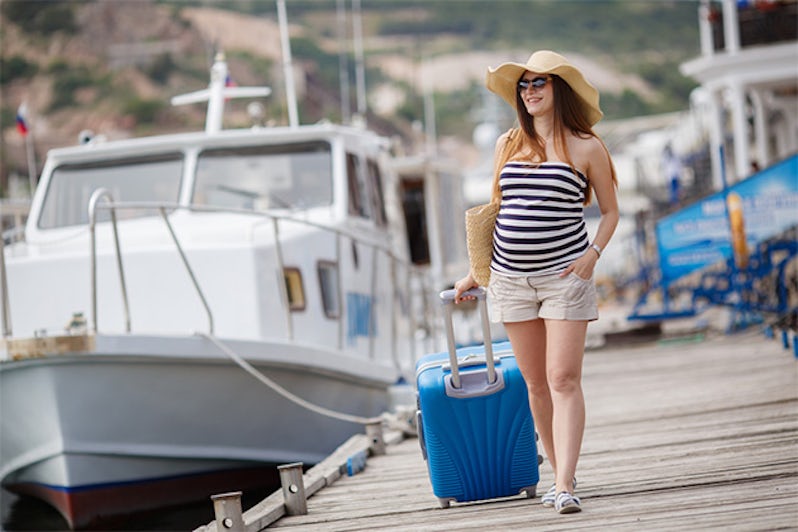
Are There Any Destinations I Should Avoid While Cruising?
With the advent of the Zika virus outbreak (notorious for causing horrendous birth defects, like microcephaly, to the babies of infected pregnant women) in popular Caribbean cruise destinations, it's imperative that you educate yourself on any health advisories in place and suggested vaccinations and precautionary measures for the destinations that you'll be cruising to. The Centers for Disease Control and Prevention maintains an up-to-date listing of health advisories in countries around the world , including a special section on Zika ; refer to this resource in consultation with your doctor's advice before booking any trip.
Use common sense and accept that this might not be the best time to take that African safari cruise , for instance (where the threat of malaria might be an issue, with the consideration that some antimalarial medications are not safe to take when pregnant). You'll definitely want to avoid destinations with substandard health care, or setting out to wildly remote locales lacking any proper land-based medical care, like to Antarctica or a transatlantic sailing. Remember, medical evacuation is an ordeal and an incredible expense . . . when it's even possible.
What About Shore Excursion Restrictions While Pregnant?
Similarly, when booking shore excursions, you need to be selective, and stay mindful of your limitations, which your doctor can help you determine, if you're uncertain about what's safe. Some shore excursions restrict pregnant passengers from participating for their own safety, so do be sure to inquire before booking a tour, or risk ultimately ending up disappointed day of if you have to be turned away. Chances are that many of the more adventurous shore excursions, like zipline runs, parasailing, 4x4 tours or scuba diving, are best avoided.
In general, you'll want to pay heed to the demands of your body and the fact that you might tire easily. Don't resist the appeal of a lazy day on the beach or of lounging poolside if that feels right. Do keep the potential for fatigue in mind when choosing any lengthy excursion, or one that requires a lot of walking and activity.
Finally, as bathroom access is of heightened concern for pregnant women, be sure that wherever you go, bathrooms are within easy reach. This is of special concern when ports might require long bathroom-less bus transfers to major attractions (like to Rome from Civitavecchia, for instance).
Will Pregnancy Make Me More Susceptible to Seasickness?
If you're new to cruising and don't know whether or not you're prone to seasickness, setting out on your first sailing to test the waters while pregnant might not be the best idea. Even if you don't normally get seasick, all bets are off during all of the wild hormonal changes of pregnancy. If you're still in a morning sickness stage, adding on the queasiness that some cruisers experience from motion sickness might just compound the problem. If you know definitively that you're susceptible to seasickness, you might want to rethink your cruise plans since vomiting can lead to dehydration, which is never a great thing, but especially so when you're carrying.
While there are plenty of medications and remedies to help combat seasickness-related nausea and vomiting, you'll need to check in with your doctor to see what's safe for you to take during pregnancy. Homeopathic non-drug options, like ginger pills or acupressure wristbands, are a safe bet to help keep motion sickness at bay.
And, to play it safe, implement good strategies for avoiding seasickness in general , like booking a cabin midship on a larger, more stabilized ship to ensure less motion, and cruising to locations that are known for smoother seas.
Are There Any Dietary Restrictions to Keep in Mind?
Of course, all of the dietary restrictions that apply during pregnancy back on land, also do so at sea. Don't expect the staff to know pregnancy-relevant particulars, like how much mercury is in the fish they're serving -- it's your job to know what's safe and unsafe to eat while you're pregnant. Nobody onboard should be expected to figure out food safety decisions for you.
On the bright side, cruise lines are famous for catering to whimsical palates and will do their best to satiate any sudden cravings pregnant guests may have, with various food venues and room service on hand. (Just keep your expectations and demands within reason!) However, prepare yourself for pregnancy-instigated aversions to smell and taste -- there might be parts of the ship, like near the greasy outdoor grill area, that you'll want to avoid like the plague.
Think about keeping some snacks in the room for those late-night cravings (many modern cruise ships even have mini-fridges featured right in the staterooms). If there are any snack foods in particular from home that you simply can't do without and aren't sure to find on the ship or in port, do bring 'em along. Keeping crackers on hand for unexpected bouts of nausea is never a bad idea.
Other smart tips are to stay well hydrated; be sure to bring a reusable water bottle to refill for shore excursions, especially in warmer climates. And don't be shy to ask for virgin frothy drinks (a pina colada is almost as good without the rum!), which can be fun and refreshing.
In port, take additional precautions as needed. Don't drink tap water where you shouldn't, make sure dairy products are pasteurized, skip the "iffy" restaurants and save that tempting-looking but questionable street food fare for next time, once baby's arrived!
Are There Any Cruise Ship Activities That Are Especially Well-Suited or Not Advisable for Pregnant Passengers?
Cruising is generally one big prescription for R&R, which is just what the doctor ordered for pregnant ladies. Relax by the pool, take in a show, attend a lecture or crafting class or even participate in a rousing game of trivia.
The spa is a welcome oasis for tired pregnant bodies, but be sure to get advance approval from your doc for treatments. Ask if any of the massage therapists specialize in prenatal massages (you just might get lucky) -- though note that it's doubtful they'll have pregnancy-friendly massage tables if you were hoping for a good back rub). Or, head to the salon for a mani-pedi or a new hairdo. Some ships even have dedicated spa suites, located close to the spa and decked out with special pampering spa amenities.
Just be sure to avoid the hot tubs and sauna, which aren't advisable during pregnancy. You'll also likely want to skip that rock climbing wall or skydiving simulator at this stage in the game. The swimming pool, however, is the perfect way to get some enjoyable exercise in. The fitness center is also fine to use, but if the ship is rocking, don't do anything where you are likely to slip or fall.
While casino play won't hurt your baby (just his or her future college fund), know that this area of the ship often permits smoking, and might not be the best for sensitive mamas-to-be.
Above all, don't over-do it and make plenty of time for simple relaxation -- enjoy the break from cooking and cleaning, unwind and listen to your body. It's completely normal to tire easily while pregnant, so don't be shy about scheduling a nap for every afternoon.
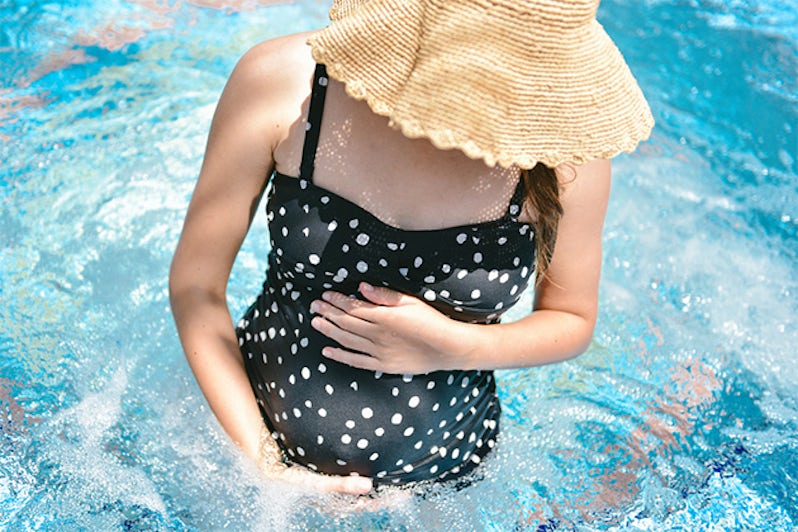
What Are Some Other Tips and Tricks For Making My Sailing More Comfortable?
A few simple tips can help make sure that your cruise is optimized for you and that growing baby belly of yours. For one, when boarding (or disembarking), feel free to ask for an expedited check-in or check-out, to avoid having to stand around in long lines on tired feet with bags in hand. (You might not get it, but it's worth a try.)
In your cabin, go ahead and request extra pillows and blankets, as needed, from your cabin attendant. Your personal flotation device should be one size fits all, but if it's too small -- given your new dimensions -- or you need help adjusting it, your cabin steward can assist you ahead of the mandatory ship drill. Throughout the rest of the ship, take some time to scout out the locations of the public ladies' rooms, so that you'll know where to rush to when nature calls (as it so frequently does during pregnancy).
You'll probably want to avoid sailings that are heavy on formal nights, which might be demanding of formalwear (meaning a new dress to buy that you'll likely only wear once). We say, the more casual the cruise, the better. Don't forget to invest in a maternity swimsuit, however, if your plans involve lounging by the pool or beach, and your regular two-piece no longer fits. Finally, be sure to pack comfortable shoes, since you'll be doing plenty of walking both on deck and in port.
Above all else, don't hesitate to ask for help at any time. From when you book to when you disembark, so long as you clearly communicate your desires and preferences, you can count on your cruise line to bend over backward to make sure that they cater to your every pregnant need.
© 1995— 2024 , The Independent Traveler, Inc.

Cruising While Pregnant: Everything You Need to Know
A cruise can be a great way to travel during pregnancy. But, if you’re planning to take a cruise while pregnant, there are certain things that you’ll need to be aware of.
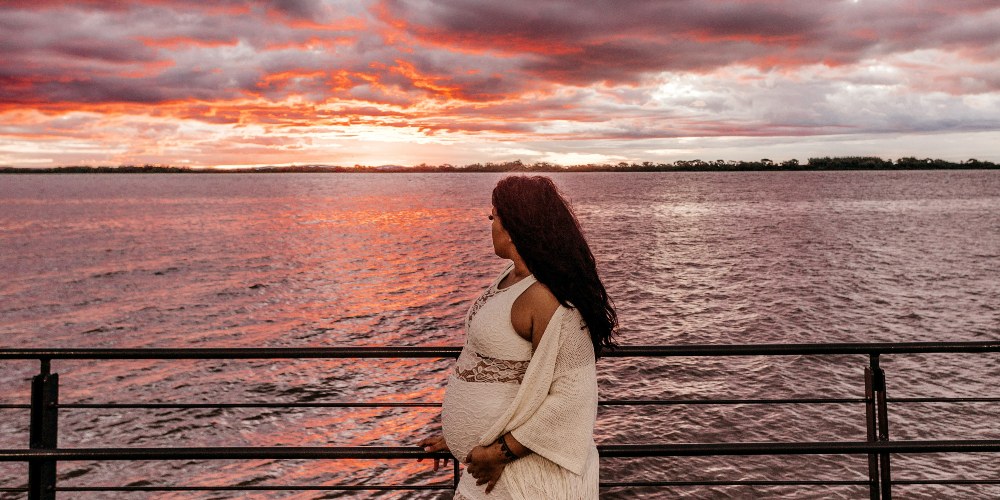
I took a Caribbean cruise when I was 12 weeks pregnant and I’m sad to admit that I made a couple of mistakes because I wasn’t aware of all the rules and recommendations. So I wrote this guide to help others who might fall into the same trap.
Here’s a picture of me and my bump with the Norwegian Breakaway. I probably shouldn’t have done that high ropes course, in retrospect.
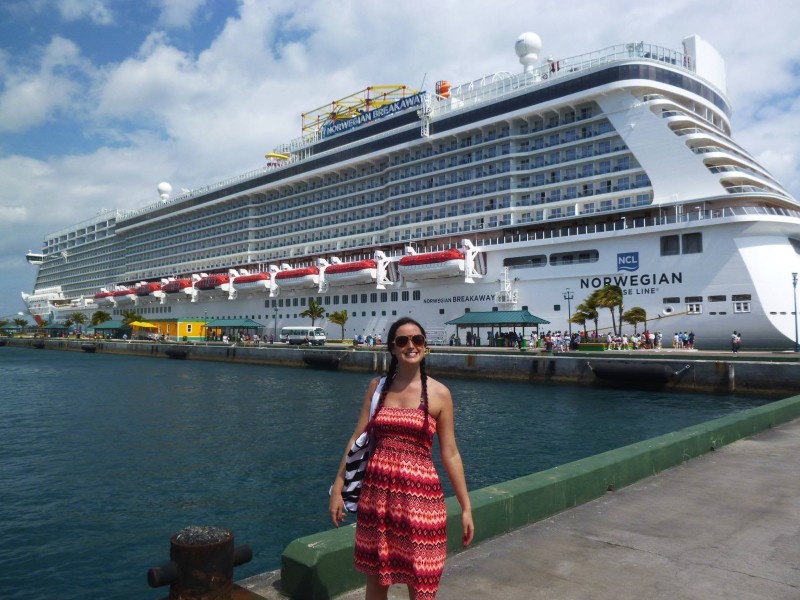
But, I’ve done my research since then, so read on for everything you need to know about cruising while pregnant.
While you’re here, if coming up with a baby name is on your list still, take a look at my list of ocean-themed names for babies for some inspiration.
Can You Go On a Cruise While Pregnant?
You can go on a cruise provided that you are well enough to travel and have not entered the third trimester of your pregnancy (24 weeks). To be allowed to travel, you must be less than 24 weeks pregnant on the last day of your cruise.
You will be denied boarding – in early 2024, a woman was banned from the ship due to the Carnival cruise pregnancy policy and refused a refund.
Is It Safe To Go On a Cruise While Pregnant?
If you are having a normal, healthy pregnancy then it is perfectly safe to go on a cruise. However, if you have any pregnancy complications, medical conditions, previous premature births or are expecting multiple babies, your doctor may advise you not to cruise.
If you’re in any doubt about whether cruising during pregnancy is safe, you should contact your doctor for advice.
Do You Have To Tell the Cruise Line You Are Pregnant?
Most cruise lines require that you bring a doctor’s letter that states your estimated due date and that you are fit to travel. However, you’re unlikely to be asked to show the letter unless your bump is obvious.
You should always tell your travel insurance company that you’re pregnant to make sure that your pregnancy is covered. If you don’t, you may invalidate your travel insurance policy.

Hiding Pregnancy on a Cruise
Sneaking on a cruise pregnant is a really bad idea. Please don’t do it! If you go into early labour, you may be stuck at sea with none of the facilities that a premature baby needs to keep them alive.
Even if you can make it ashore in time to deliver your baby, you may find yourself trapped in another country for months until your baby is well enough to come home. You could face huge medical bills that aren’t covered by your travel insurance. It’s just not worth the risk.
The Baby That Was Born on a Cruise Ship
In 2015, a baby was born on a Royal Caribbean cruise ship, four months early and weighing just 1lb 8oz. Medical staff managed to keep him alive until the ship reached port.
Doctors initially told the mother that the baby was dead, but later discovered that he was, in fact, alive. The ship reached Puerto Rico 12 hours later, where the baby was rushed to the hospital, before being flown to Miami a few days later.
The baby spent the next four months in the hospital before being allowed home. The birth certificate said, ‘place of birth – at sea’.
Can You Cancel a Cruise if You Fall Pregnant?
It’s common to book a cruise many months (or even years) in advance. If you fall pregnant in between booking your cruise and sailing, you may find that you’re unable to cruise because you’ll be too far along in your pregnancy, or you’ll have a newborn baby.
If this happens, you should contact your cruise line (or travel agent) to let them know.
In most cases, your cruise line will allow you to move your cruise to another date or will issue you with a voucher for a Future Cruise Credit .
It’s unlikely that you’ll be able to get a full refund for your cruise, but you may be able to claim on your travel insurance, as long as you were not aware of the pregnancy when you booked the cruise.

Tips for Cruising During Pregnancy
1. choose your destination carefully.
During your pregnancy, you should avoid visiting any countries where there is a risk of zika virus , malaria or any developing countries where the food or water may not be safe.
2. Check Your Travel Insurance
You’ll need to let your insurer know that you’re pregnant, and ensure that you have adequate cover to cruise while pregnant.
3. Pack Acupressure Wristbands
Pregnancy can make seasickness worse. So even if you don’t usually get seasick , you may do when you’re pregnant.
You won’t be able to take any seasickness medication while you’re pregnant. The best drug-free ways of dealing with seasickness are to buy acupressure wristbands on Amazon or to eat ginger biscuits and green apples.

4. Use Plenty of Sunscreen
Pregnancy can cause your skin to become extra sensitive and you can burn more easily in the sun. As cruise ships are often windy, you can get burnt even if the weather doesn’t feel particularly warm. So, always use sunscreen with a high SPF and reapply it regularly.
5. Check Which Activities Are Suitable
Some of the activities that you’ll find on a cruise ship, such as water slides , zip-lining and ice skating are not suitable for pregnant women. Each activity will have a board outside listing the restrictions, so be sure to read it before you join the line.

6. Get the Right Drinks Package
Usually, if you have a drinks package on a cruise , then both passengers in the cabin have to get the same one. However, if your partner wants the alcoholic drinks package and you’re pregnant, you should be allowed to get the non-alcoholic version for yourself. You might need to call the cruise line, rather than buying it online.

7. Pack Comfortable Clothes
A combination of heat and over-indulgence can lead to your clothes and shoes becoming tight fairly quickly on a cruise. Pack elasticated trousers and floaty dresses to ensure that you’re comfortable. Balancing in high heels can be tricky during rough seas, so you may wish to stick to flat, comfy sandals.
Read more: What Shoes To Pack For A Cruise
8. Plan Your Excursions Carefully
Cruising during pregnancy can be exhausting, particularly if you’re sightseeing every day. If you do want to explore ashore on excursions, city tours by coach might be better than walking tours, hikes or anything too energetic
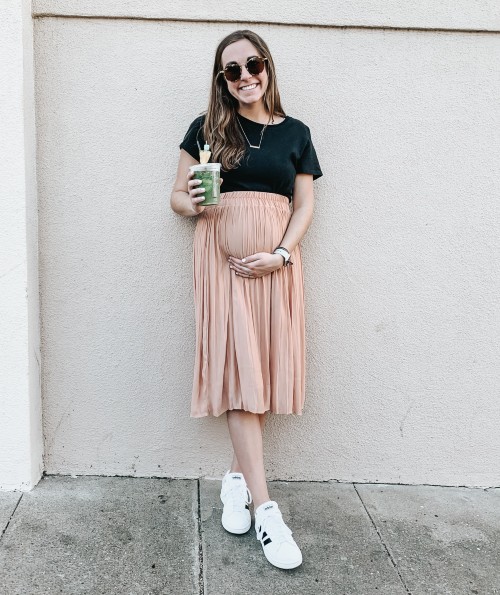
9. Make Time To Nap
There are lots of lovely places to take a nap on a cruise ship. So if you’re feeling tired, find a cosy day bed, send your older kids to the kids’ club and enjoy some much-needed rest and relaxation.
Cruise Lines’ Pregnancy Policies
Below, you will find links to the pregnancy policy for each cruise line…
- Carnival pregnancy policy
- Celebrity Cruises pregnancy policy
- Costa Cruises pregnancy policy
- Disney Cruise Line pregnancy policy
- MSC Cruises pregnancy policy
- Norwegian Cruise Line pregnancy policy
- P&O Cruises pregnancy policy
- Princess Cruises pregnancy policy
- Royal Caribbean pregnancy policy
- Virgin Voyages pregnancy policy
To Conclude
Cruising while pregnant can be very enjoyable. I took a Caribbean cruise from New York during my pregnancy because I knew that once we had kids, we’d be unlikely to be able to take that kind of trip.
As long as you know what the recommendations are and listen to your body, you’ll have a great time on your cruise.
Related Posts:
- Guide To Taking a Baby on a Cruise Ship
- Do You Have To Pay For Babies on Cruises?
- How to Avoid Getting Sick On A Cruise
- 17 Common Mistakes People Make When Booking a Cruise
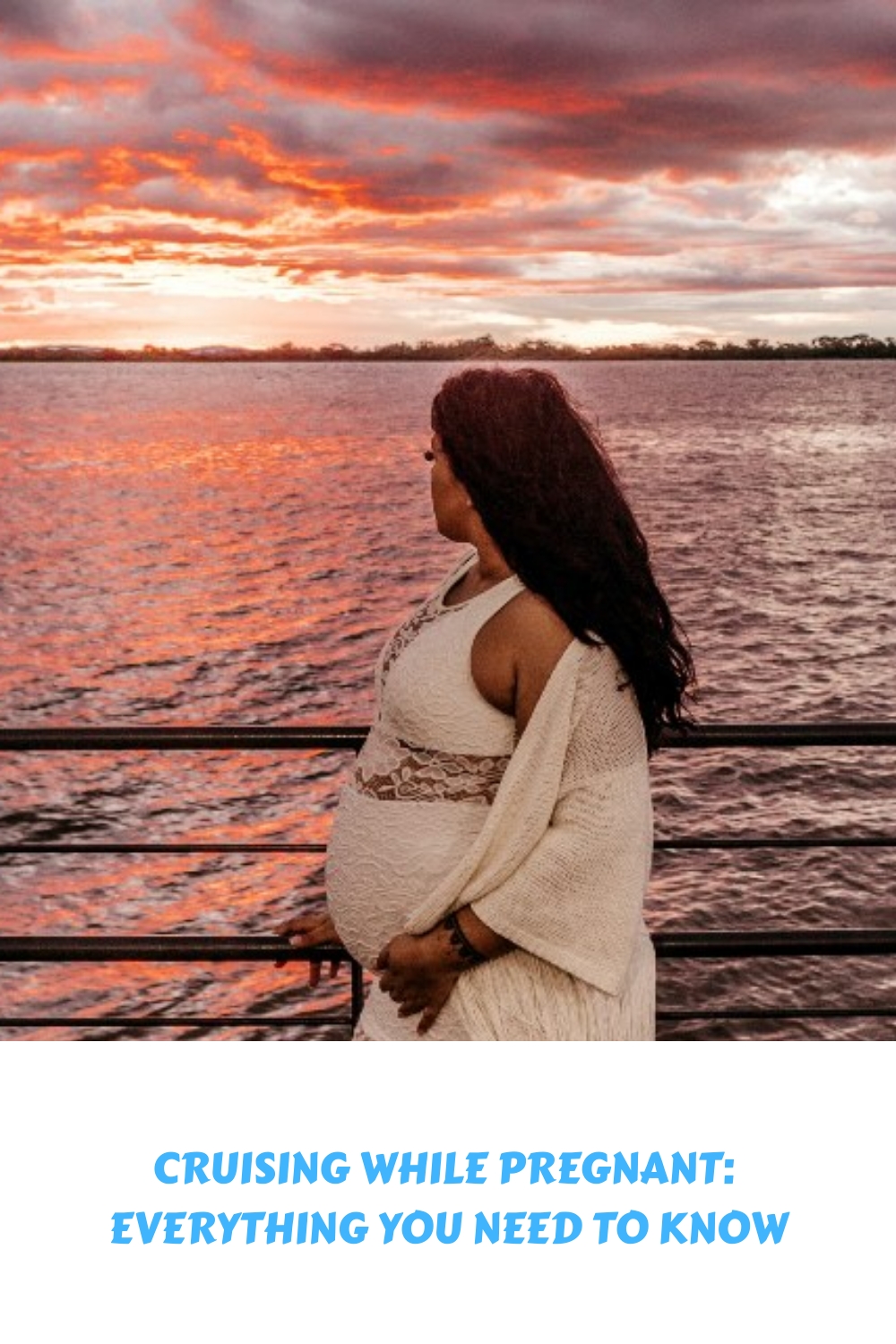
If you found this interesting, please share!
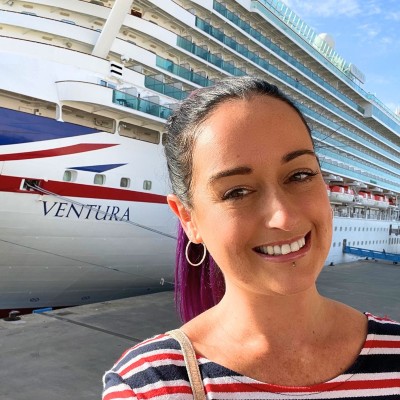
Jenni Fielding is the founder of Cruise Mummy. She has worked in the cruise industry since 2015 and has taken over 30 cruises. Now, she helps over 1 million people per month to plan their perfect cruise holidays.
Read more about me
2 thoughts on “Cruising While Pregnant: Everything You Need to Know”
Can i ask where you would get a letter to say you are fit to cruise while pregnant? My GP are saying they dont offer this and im due to cruise on the 31st march.
I have never needed a letter but you may need one if you have pregnancy complications or your medical notes to prove the dates of your pregnancy and that you are not too far along to cruise.
Leave a comment Cancel reply
Save my name, email, and website in this browser for the next time I comment.
- Search Please fill out this field.
- Manage Your Subscription
- Give a Gift Subscription
- Newsletters
- Sweepstakes
- Travel Tips
What to Know If You're Traveling While Pregnant
Your guide to cruising, road tripping, and flying when pregnant, including how to prepare, what to pack, when to go, and more.
Evie Carrick is a writer and editor who’s lived in five countries and visited well over 50. She now splits her time between Colorado and Paris, ensuring she doesn't have to live without skiing or L'As du Fallafel.
:max_bytes(150000):strip_icc():format(webp)/evie-carrick-df91be43396540c492c4141c56a71a9e.jpg)
You might think you have travel all figured out — you can pack your carry-on like a pro and have a knack for finding deals on everything from rental cars to train tickets — but add pregnancy into the mix and you could be thrown for a loop. With a literal baby on board, your awareness of things like Zika, long-haul flights , and food poisoning are heightened. You want to get out there, but you also know you need to do it safely.
So, where do you draw the line? What constitutes safe travel and when is it OK to hit the road, skies, and waters? To answer these sensitive questions, we spoke with Pamela Berens, MD, professor of OB-GYN with McGovern Medical School at The University of Texas Health Science Center at Houston, for a dose of expert advice.
When You Should and Shouldn't Travel
Just because you're pregnant doesn't mean you need to hide out in your house for nine months, but it does mean you should keep a few things in mind. "Traveling in the first trimester could be uncomfortable if you are experiencing nausea and vomiting (morning sickness)," Berens noted. On the flip side, she explained, "Traveling during the third trimester may be a bit physically uncomfortable, especially if the trip is long." In short, your sweet spot in terms of comfort might be the second trimester, although every pregnancy is different. And you should probably stop traveling (at least by air) once you hit 37 weeks.
"Most airlines will allow travel until 37 weeks of pregnancy, but you may need a note from your healthcare provider. Check with the airlines you'll be traveling with for specifics," said Berens.
What to Do Before You Go
Before booking a flight or hop aboard a cruise ship, talk to your doctor or midwife. They know you and your pregnancy experience so far and will be able to give you personalized advice on what sort of travel is and isn't a good idea.
"If you have a complicated pregnancy, speaking with your prenatal provider is even more important. If something happens while you're traveling, it's important for the health providers to know the details of your complications and specific plans related to your delivery or any special care needs you might have for your baby," advised Berens.
Either way, you'll need to ask yourself a few questions before traveling internationally. "The big consideration here is what would happen if you experienced a complication while traveling to a foreign country. Can you speak the language? How good is the medical care? What insurance coverage do you have while traveling abroad? I have, unfortunately, had patients who delivered a preterm infant in a foreign country. They had to stay there for quite some time until the baby could be discharged and had communication difficulties," said Berens.
What to Pack
There are plenty of things pregnant women might want to bring along on a trip — from anti-nausea medicine and compression socks to plenty of water and snacks. But one thing many women don't think about is their prenatal records.
"Always have access to your prenatal records when traveling, just in case," said Berens. That way, if you end up laboring while you are away from home, the new hospital or doctor will be able to access your history and come prepared. If you're traveling close to your due date, you'll also need to bring a note from your healthcare provider. On American Airlines, for example, you must provide a doctor's certificate stating that you've been examined and are fit to fly if your due date is within four weeks of your flight.
What to Watch Out For
If you're used to eating street food and drinking local water when traveling internationally, you may need to adjust your habits. Berens suggests sticking to bottled water, noting, "It's very unpleasant to experience a diarrheal food borne illness while pregnant."
In addition to paying extra attention to food and water, you'll also need to keep an eye on the health situation in the country you're visiting. The Zika virus, which is transmitted by mosquitoes, is particularly dangerous to your unborn baby. "In areas of mosquito borne illnesses, wear long sleeves and pants. Keep covered. Use an insect repellent," said Berens. It's always a good idea to check for travel advisories before booking your trip.
In addition, all pregnant travelers — domestic and international — will need keep a close eye on their health and bodily functions while traveling. "Notify your care provider for bleeding, change in discharge, increased contractions, or a decrease in your baby's movements if you are over around 24 weeks of pregnancy," said Berens.
Flying While Pregnant
Air travel is usually safe for pregnant women, but you won't want to pop in your headphones and settle in for the duration of your long-haul flight .
"Pregnancy itself causes an increased risk of blood clots. Air travel and prolonged immobility can also increase your risk of blood clots," said Berens, suggesting that pregnant women "stay well hydrated, move around every few hours , and make sure to keep good circulation in [their] legs."
Chances are, when you get up to stretch your legs, you'll also need to use the bathroom. "There is often more pelvic pressure and pressure on your bladder in the third trimester, so you may need to stop and use the restroom more frequently," said Berens.
Because you'll be getting up and walking around more than most travelers, The American College of Obstetricians and Gynecologists (ACOG) suggests booking an aisle seat and moving your feet, toes, and legs often. For your comfort, you'll want to skip carbonated drinks and wear your seat belt low on your hip bones, below your belly.
Traveling by Car or Train While Pregnant
Just like air travel, long-haul road trips and train journeys mean a lot of sitting and not a lot of moving. To avoid problems with blood clots, Berens suggests walking around every few hours.
For road trips, you'll also want to plan out stops along the way where you can stretch your legs and use the bathroom.
Traveling by Cruise Ship While Pregnant
Many women experience nausea and vomiting in the first trimester of pregnancy, two conditions that might be increased when you hop aboard that luxe cruise. "If you are not familiar with boat or cruise ship travel , you may want to try this first when you are not pregnant. You may need additional medication for nausea and vomiting," warned Berens.
What to Keep in Mind With COVID-19
COVID-19 has made travel complicated for everyone, but pregnant women are at an increased risk for severe illness . Berens recommends that pregnant women finish their vaccinations before traveling, also adding, "Mask up! Stay six feet apart, and maintain good hand hygiene."
Related Articles
- Skip to main content
- Keyboard shortcuts for audio player
Your Health
- Treatments & Tests
- Health Inc.
- Public Health
Is Zika Still A Problem In Florida And The Caribbean?

Michaeleen Doucleff

When the Centers for Disease Control and Prevention lifted its last Zika travel advisory for Miami-Dade County last week, residents and visitors to Miami's popular South Beach neighborhood were relieved. Still, doctors say, pregnant women should continue to take extra precautions. Joe Raedle/Getty Images hide caption
When the Centers for Disease Control and Prevention lifted its last Zika travel advisory for Miami-Dade County last week, residents and visitors to Miami's popular South Beach neighborhood were relieved. Still, doctors say, pregnant women should continue to take extra precautions.
There's no doubt about it: Zika is on the retreat in the Americas.
In Brazil, cases are down by 95 percent from last year. Across the Caribbean, outbreaks have subsided. And in Florida, the virus seems to have gone into hiding. Health officials haven't investigated a new Zika case for more than 45 days in Miami-Dade County.

Shots - Health News
Miami's zika outbreak began months before it was first detected.
Last week, the Centers for Disease Control and Prevention lifted the last travel warning for southern Florida. The agency is no longer recommending that pregnant women avoid the region.
"That's really exciting news," says Dr. Christine Curry , an OB-GYN at the University of Miami and Jackson Memorial Hospital. "Everybody has sort of exhaled."
But the threat to pregnant women, whether residents or travelers, isn't over — not in the least — Curry says, neither in Florida nor abroad.
So what should pregnant women and their families, or women who are trying to get pregnant, do? Let's start with Florida. Then we'll swing back to the international question at the end.
Living or traveling in South Florida
"We can't go back to the days before Zika, where you just walked around without thinking about bug spray or the clothes you're wearing," Curry says. "People still need to practice good mosquito-bite prevention when they're living in South Florida or traveling there."

Goats and Soda
Is zika dangerous for kids it probably depends on the age.
The CDC outlines the precautions needed in Miami-Dade County and other areas of the U.S. where Zika has circulated, such as Brownsville, Texas.
These precautions are most important for pregnant women, those trying to get pregnant and their mates. For example:
- Expectant couples should continue to use condoms "every time they have sex (including vaginal, anal, and oral sex)," the CDC writes, because the Zika virus can stay in the semen of an infected man for months.
- Pregnant women should continue to get tested for Zika up to eight weeks after the travel ban has been lifted for a region — which would be until about August of 2017 for South Florida.
Such precautions are important, Curry says, for several reasons.
First, even when it looks like Zika has "disappeared," Curry says, it could still be circulating. About 80 percent people who are infected with the virus don't have any symptoms at all.

51 Babies Born With Zika-Related Birth Defects In The U.S. Last Year
And if the virus is merely lurking below detectable levels, Zika cases could start cropping up again at any moment. Last summer, Zika likely circulated in Florida for months before it was detected by health officials, a recent study found .
So if you live in South Florida, or are headed there this summer, pack the DEET , cover clothes in permethrin and be on the lookout for skeeters.
Traveling overseas
Although Zika cases have dropped across the Caribbean and Latin America, the CDC's travel recommendations haven't changed. Pregnant women should not travel to places where Zika is circulating. If a spouse travels to one of these areas, the couple should use condoms for at least six months.
Couples trying to get pregnant should also not travel to these regions. If they must, the CDC recommends waiting at least six months before trying to conceive after a man returns from a country with Zika and waiting at least eight weeks after a woman returns.
Fetal medicine expert Dr. Neil Silverman worries that some doctors are forgetting to give their patients these travel warnings.
"We've gotten calls at our practice from women who have traveled to areas where's there's clearly active transmission of Zika," says Silverman, an OB-GYN at the Center for Fetal Medicine in Los Angeles.
"Either their doctors have essentially decided the risk is over or the woman forgot to ask. Then they come back home and realize that there was a risk."
Even if a country has reported only a few cases — or hasn't had a case in months — Silverman says the recommendations are the same.
Take for instance, India, which reported its first official cases in May. There were only three cases recorded, across the entire country. But the virus has likely been circulating in India for decades, studies show. And pregnant women should avoid travel there, Silverman says.
" For the purpose of a traveler, there's not a huge distinction between whether a country has a large number of new cases occurring or whether there's sort of a background, long-standing risk," he says.
Places with this sort of background risk include large parts of Southeast Asia and Africa.
So if you're pregnant or "trying," check out the CDC's Zika map before booking a plane ticket, and avoid all the areas that are purple on the map.
"With everything else going on in the country and in the world, Zika has taken a little bit of a backseat in the news cycle," Silverman says. "But it's still a big concern."
- birth defects
Can you go on a cruise while pregnant?

Cruising while pregnant might sound like a dream come true — or your worst nightmare. Imagine the 24/7 snack and meal offerings that cater to all your food cravings, plus onboard crew to do all the cooking and cleaning so you can rest and savor blissful alone time with your spouse before the baby comes.
Then again, the rocking of the ship might trigger your morning sickness, you're far from your trusted obstetrician, and there's no McDonald's in sight when you must have a Big Mac and fries at midnight — and no, that room service burger does not solve the problem.
Can you even book a cruise when you've got a bun in the oven? The answer is yes — up to a point. Don't expect to sneak in that bucket list trip to Alaska in your third trimester or schedule yourself for a foot massage in the onboard spa just weeks before your due date.
For more cruise guides, news and tips, sign up for TPG's cruise newsletter
If you're expecting (or expecting to be soon), here's what you need to know — and what to expect — about cruising while pregnant.
How many weeks pregnant can you still cruise?
All the major cruise lines have the same pregnancy policy: Guests are allowed to cruise through their 23rd week of pregnancy. If you will enter your 24th week before or any time during your cruise, you are not allowed to sail.
The cruise lines are firm on this policy, so don't bother asking for an exception. "Neither a doctor's medical statement nor a waiver of liability will be accepted," reads Disney Cruise Line 's pregnancy policy.
Why can't you go on a cruise after 24 weeks pregnant?
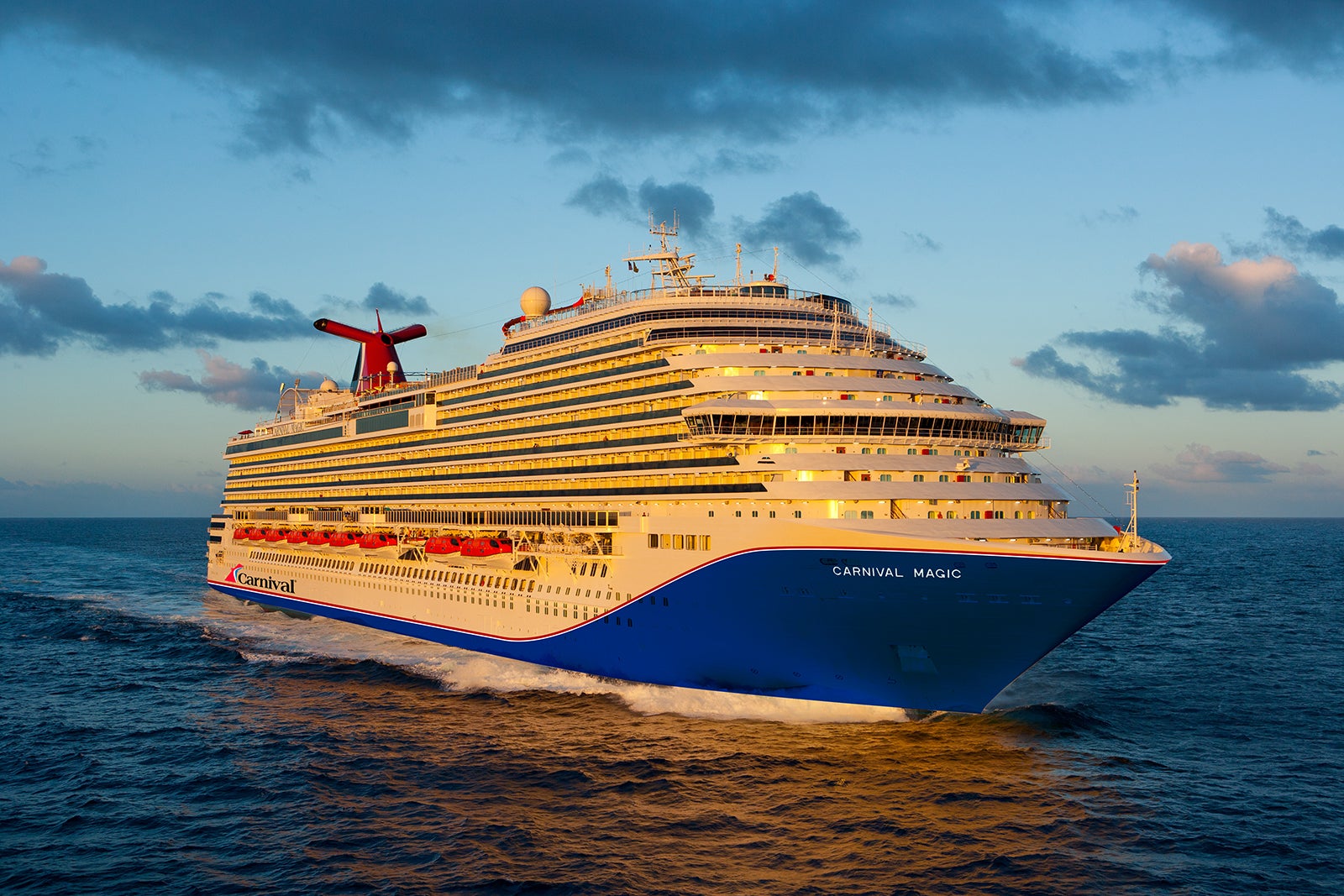
The reason you can't sail during your third trimester of pregnancy is a health-focused one.
Carnival Cruise Line 's policy, as spelled out in its contract of carriage, makes it clear.
"In addition to the limitations in medical care described in Clause 2(a) of the cruise ticket contract, prenatal and early infant care, in particular, may require specialized diagnostic facilities and/or treatment that are not obtainable during the cruise on board the ship and/or ashore in ports of call. Therefore, any Guest who has entered, or who will at any time during the cruise enter, the 24th week of estimated gestational age in her pregnancy, agrees not to book a cruise or board the ship."
Why do the cruise lines draw the line at 24 weeks?
In the U.S., fetuses are considered viable at that gestational age. That means if a mother delivers a baby at 24 weeks, it has enough of a chance of survival (due to organ development and medical technology) that doctors will intervene to save it. Pre-term deliveries prior to 24 weeks are predominantly miscarriages. A cruise ship's medical center is not equipped to care for an extremely premature baby, so the cruise lines make their policies to minimize the chances of a baby being born alive on board.
Setting aside premature delivery, the third trimester is simply a riskier time for the mom and the fetus.
"As the fetus is progressing, there are just more complications related to both the mom's health and also for the fetus," explains Dr. Jenny Yu, head of medical affairs at TPG's sister company, Healthline Media . "You have increased risk for preeclampsia, high blood pressure, also gestational diabetes."
These are not medical issues you want to experience in the middle of the ocean, away from land-based hospitals with dedicated prenatal specialists. Cruise lines recognize it's not in the best interest of the mother to be far from care at this time.
Related: 5 best cruise lines for families
Do I have to tell the cruise line I'm pregnant?
Certain cruise lines specify that you do need a doctor's note to sail.
"All pregnant women are required to produce a physician's letter stating that mother and baby are in good health, fit to travel and the pregnancy is not high risk," states Princess Cruises ' FAQ section on pregnancy. "The letter must also include the estimated date of delivery (EDD) calculated from both Last Menstrual Period (LMP) and ultrasound (if performed). Please ensure you have your doctor's letter with you when you embark."
Norwegian Cruise Line also asks for a "medical certificate establishing your due date prior to your cruise."
Even if your cruise line does not specifically ask for a doctor's note, it's a good idea to bring one with you. This is especially true if you're close to your 24th week, rocking a baby bump and need to assure crew members that you are permitted to sail. It could also be of use to the onboard doctors and nurses should you have a medical issue during your cruise.
Now, you might have a more devious idea in mind when asking this question. Perhaps, you are considering hiding your pregnancy so you can go on a cruise early in your third trimester. TPG does not condone rule-breaking, and as I stated above, the cruise lines have good reasons for banning pregnant women from cruising in their third trimester.
If you want to argue about technicalities: If your cruise line does not require a doctor's note, and you are not obviously pregnant, you could book a cruise and make it on board without anyone knowing. But you run the risk of trouble should you get caught.
"Any pregnant woman who tries to board the vessel, who has or will enter her 24th week of estimated fetal gestational age at any time during the cruise, risks denial of boarding and/or disembarkation without compensation or refund," states Carnival's policy.
Remember that cruise lines make these rules for the safety of mother and baby. Do you really want to compromise your baby's health, and yours, for a vacation?
Should I go on a cruise while pregnant?

Now that's the better question to ask. And the answer depends on multiple factors.
From a health perspective, Royal Caribbean recommends that "the Guest and treating physician should consider before any cruise that there is no Obstetrician/Gynecologist available on the ship, and that pregnancies, when unstable and poorly controlled, are potentially life-threatening, especially without back up. A Guest may be at sea for several days without any immediate hospital and/or specialist back up, and that since the proposed itinerary is not within the U.S., the availability of specialized shore side facilities can be problematic."
Before booking a cruise, a pregnant person should consult with their doctor to determine how great a risk travel might be to the pregnant person or fetus. Pregnant people are in a pro-inflammatory state, explains Yu, meaning "you're at increased risk for catching other viruses — norovirus, food poisoning, salmonella. If you got dehydrated from anything that's related to a GI bug, then it puts both the mom and the fetus under more stress, and that can increase the risk of preterm labor."
She also explains that pregnancy puts you at higher risk for blood clots from sitting too long (such as on the flight to your cruise departure port). Additionally, spontaneous termination of a pregnancy is possible between six and 12 weeks, especially, if you pick up an infection while traveling. You'd then have to deal with the physical and emotional repercussions of a miscarriage while on vacation.
Should something go wrong during the trip, know that you can't sue the cruise line. Disney Cruise Line clearly states that it "cannot be held responsible or liable for any complications relating to pregnancy at any stage."
If you've done a risk analysis and are fine with travel, the question becomes whether a cruise is a good choice for a babymoon. I've cruised during both the first and second trimesters of pregnancy and can identify both pros and cons of the decision.
Related: The 5 best cruise lines for romance
Cruising can be a stress-free vacation. Multiple restaurants and entertainment options are just steps away from your onboard accommodations, so you can have fun without agonizing about where to eat, where to park and what to do at night. You have access to all kinds of food and can even order it to your room. You can nap as much as you like on comfy cruise ship beds or on the pool deck in the sun, and float in the pool to relax.
Yu agrees that travel can be a good thing for an expecting couple "if you want to be able to take some time for you and your partner to disconnect and prepare for the baby." She especially touts the mental health benefits of getting out of your house and into a more natural setting. "Get outside and see nature because that can help improve mood if you're having a hard time ... with the pregnancy."
The flip side of that is you won't be able to take part in some of the most popular cruise ship activities, such as sipping fruity cocktails, soaking in a hot tub, sweating in the thermal suite or eating freshly made sushi. If you're feeling tired, long or active tours might not sound appealing. If you're nauseated, a rocking ship or bus ride in port might make it worse. And if you're the type to be anxious about your pregnancy, you might have trouble relaxing when you're miles out to sea.
I found I enjoyed cruises while pregnant; I didn't mind skipping the booze (I'd be doing that at home anyway) and I had enough energy for tours — even if I did have sudden urges to snack that I satisfied with a stash of peanut butter crackers and granola bars I brought from home.
What precautions should I take if I want to cruise while pregnant?
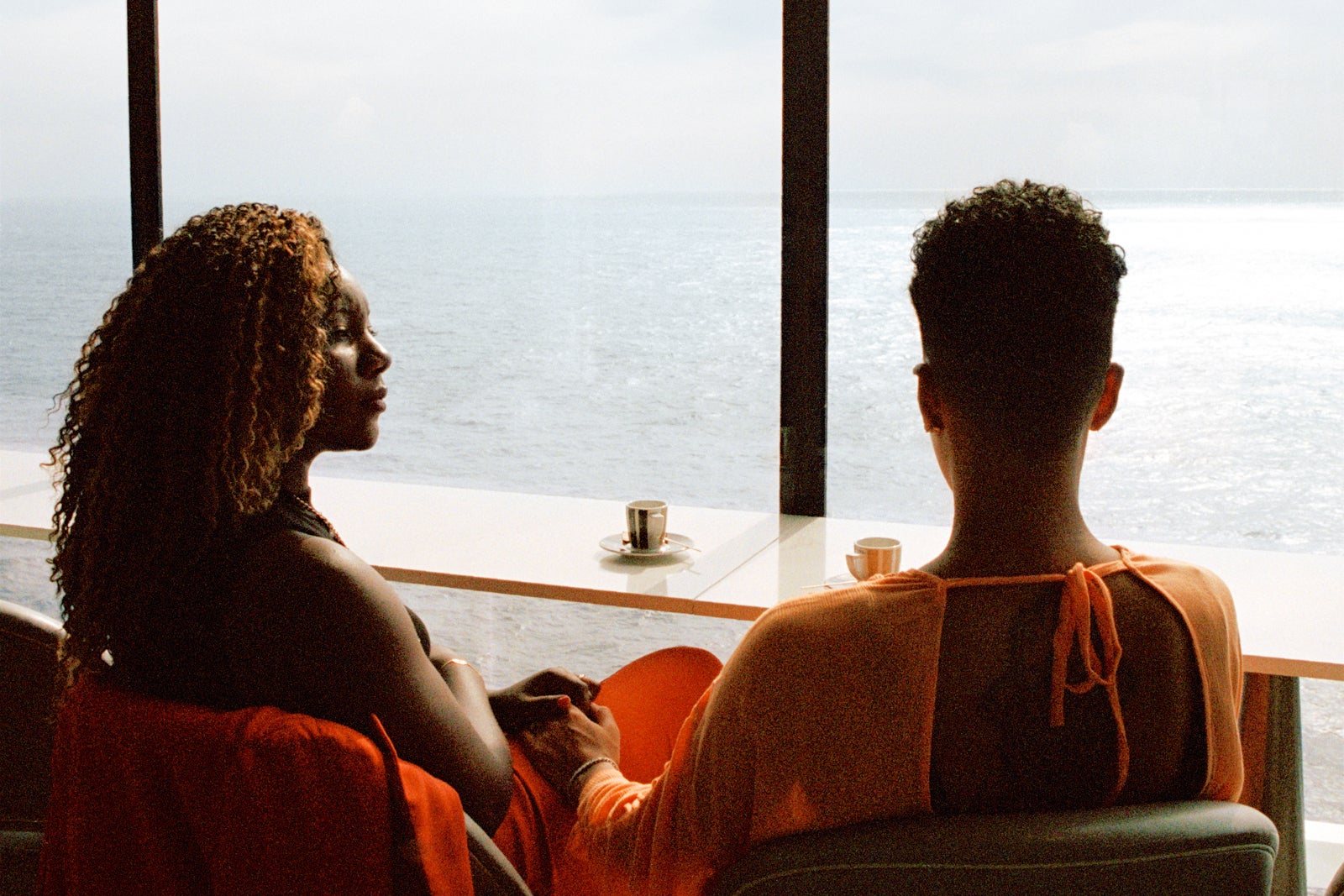
The first step is to pick the right time to cruise. "If you're going to choose a trimester, [the second trimester] is probably the lowest of the risks because that's not fetal development anymore," said Yu. "That's a period where the mom is still feeling well and the risks for complications are a bit lower in terms of preterm labor."
You also want to pick the right itinerary. "A shorter cruise like a three- to five-day (versus a seven- to 14-day) is probably a better bet than the longer cruises," Yu suggested, acknowledging the time you'll be far from your medical team.
If you're interested in a longer cruise, a port-intensive trip where you're often close to land or in port every day will keep you closer to medical care in the event of an emergency versus a transatlantic crossing with multiple days in a row spent at sea.
Once you've booked the trip, make sure you bring the right gear with you. Compression socks can help prevent blood clots; sensible shoes will reduce swelling (and tripping) when walking around the port.
You'll want to pack snacks for those sudden cravings, as well as ginger candy or Preggie Pop Drops to help with morning sickness. Don't forget a first-aid kid with approved medications for pain or heartburn relief or other common ailments.
When you're on your cruise, make sure you stay hydrated and only drink safe sources of water. Get plenty of rest and food (the latter are usually not difficult to accomplish on a ship), but also remember to take daily walks to reduce clotting.
Protect yourself from mosquito-borne illnesses like Zika by wearing bug spray and covering up in buggy areas. As always, follow the general recommendations for pregnancy, such as avoiding extreme heat and altitude, reducing alcohol and caffeine consumption and staying away from raw foods or high-mercury fish.
Related: How to avoid getting sick on a cruise
What happens if something goes wrong with my pregnancy during a cruise?
All large, ocean-going cruise ships have a medical facility with doctors and nurses on call around the clock. Should you feel ill or that something is wrong, you can head down to the medical facility (it's usually on a low or crew deck) during its scheduled open hours, or call the front desk for emergency help.
The medical staff has equipment on hand to assess your condition. If they are able to, they will treat your condition on board. For example, they can give you fluids for dehydration or diagnose a miscarriage.
If they cannot adequately treat you on board, they can either transfer you to a local hospital in the next port of call or — in a true emergency — medevac you off the ship via helicopter. (I once witnessed a medical evacuation by helicopter of a crew member suffering from an ectopic pregnancy. The emergency team lowered down ropes and pulled her from the ship to the hovering chopper in a basket-style stretcher.) If you're medically disembarked, you'll be on your own to find your way back home again.
What happens if I book a cruise far in advance and then get pregnant unexpectedly?
First, determine if you still want to go on the cruise or if you'll be past your 23rd week and can't go.
If you wish to or need to cancel the cruise, your next steps depend on whether you've paid in full or not. If you have only paid a deposit, you can cancel the cruise easily. In most cases you will recoup your deposit; however, certain fare types (such as Carnival's Early and Super Saver fares) have nonrefundable deposits and you would lose these.
Given that final payment is typically 90 days (roughly 13 weeks) prior to sailing, you shouldn't have a problem if you discover that you're pregnant before you're 10 weeks along and cancel immediately.
If you've already paid in full, standard cancellation penalties apply. If you purchased travel insurance, you could see if your policy would cover this situation.
"There are a few plans that may offer coverage for cancellation due to your normal childbirth or pregnancy," said Meghan Walch, director of product for InsureMyTrip, a travel insurance retailer. "It is important to note that the date of conception, as noted in your medical records, must have been after the purchase of a policy."
What happens if a baby is born on a cruise?
Any baby born on a cruise ship will be incredibly premature with a minimal chance of survival. Cruise ship medical facilities are not equipped with the incubators and other equipment needed to care for a preemie. However, it has happened; in 2015, a baby was born at 23 weeks on a Royal Caribbean cruise ship and miraculously survived.
If a baby is born on a cruise ship, the doctors will do the best they can for the mother and child with the equipment available to them, and the captain will do whatever is necessary to get the family to a land-based hospital as soon as possible.
Should a baby be born on a cruise ship and survive, you might wonder what nationality that child will be given. The baby will automatically take on the citizenship of the parents.
If the baby is born in the territorial waters of a country, she might be granted additional citizenship to that country; if the baby is born in international waters, she might be granted citizenship to the country in which the ship is flagged. However, that depends on each country's laws and how it chooses to extend citizenship.
Ultimately, if you want your child to have an additional passport, giving birth prematurely on a cruise is not the best way to go about that.
Bottom line
A cruise can be an incredible babymoon for you and your partner and even a future older sibling. But cruising while pregnant at any trimester involves risks. Consult your doctor and evaluate the pros and cons before setting sail.
Planning a cruise? Start with these stories:
- The 5 most desirable cabin locations on any cruise ship
- A beginners guide to picking a cruise line
- The 8 worst cabin locations on any cruise ship
- A quick guide to the most popular cruise lines
- 21 tips and tricks that will make your cruise go smoothly
- 15 ways cruisers waste money
- 12 best cruises for people who never want to grow up
- The ultimate guide to what to pack for a cruise

Reservations
Manage My Bookings
Airport Check In
Fare Families
Cacique Rewards
Cacique Rewards Log In
Join Cacique Rewards
Earn Cacique Points
travel-information
Passports and Visas
Dangerous Goods
Baggage Essentials
Travel Health
Traveller Information Centre
Travel-tools
Flight Track
Gift Certificates
Payment Options
Air Operations Certificate
Our Aircraft
interCaribbean News
Cacique Magazine
Cacique Magazine Media Pack
CaciqueMagazine.com
Customer Services
Baggage Claim
Charter Requests
Group Requests
Refund Requests

- Travel Information: Things to know when Flying
Pregnant and Flying
- Pregnant women flying between their sixth (06) to eighth (08) months of pregnancy shall be required to have a medical certificate from their personal physician.
- Expectant Mothers beyond their eighth (08) month of pregnancy, and who requires air transportation for special reasons, may be accepted for carriage only upon clearance from their personal physician. A medical certificate should be presented to the ticketing agent upon purchase of the ticket and to the check-in counter on the day of the flight.
- The validity of the medical certificate is 7 days from the date of issuance unless specified in the certificate that the passenger is released to travel on a specific date.
- Expectant Mother must have completed their travel within the validity period of the certificate otherwise, a new medical certificate may be required.
- google-plus

25 Best Places To Travel While Pregnant | Safe + Zika Free In 2024
THIS POST MAY CONTAIN COMPENSATED LINKS. FIND MORE INFO IN MY DISCLAIMER.
Home » 25 Best Places To Travel While Pregnant | Safe + Zika Free In 2024
Expecting parents are usually both excited and nervous in the months before the baby arrives. There is often lots of planning and prepping, especially for first-time parents.
This is exactly why babymoons are such a good idea.
Take some time, before your family travel including strollers and diaper changes, and enjoy some adult time.
A babymoon gives couples memories to cherish, final moments to relax, and even the chance for a really cute pregnancy photoshoot.
The list of best places to go on a babymoon is long, but we’ve narrowed it down to 25 of the best and listed them here for you.
What is a Babymoon Trip?
A babymoon is a vacation taken by expecting parents before the baby is born. It offers a chance to spend some quality time together before the baby is born and life gets a little chaotic.
It usually happens before the first baby, to give couples a chance to reconnect with each other before their family expands.
But there’s no set rule saying you can’t have a babymoon for your second or even third baby – just round up the babysitters for the kids at home or at the resort.
All that you have to do is to choose from one of the pregnancy-friendly travel destinations.
So let’s get to it! Here is a list of some of the best places to travel while pregnant.
25 Best Places To Travel While Pregnant in 2024
Unless you’re having a high-risk pregnancy, there’s absolutely no reason you shouldn’t be traveling overseas. You should however choose destinations that are safe for your little one.
The destinations from our list are all Zika-free. According to the CDC Zika infection during pregnancy can cause serious birth defects. So please be careful with other lists on the internet as I have seen many of them list destinations that have ZIKA.
It is important to choose one of the safe places to travel when pregnant from our list, and if you opt for a different destination due your due digilicence with research to make sure there is no Zika, malaria or rubella in that destination.
We’ve put together 25 of the best vacations for pregnant couples, solo moms, or groups of bump-buddies. These all offer a fun and relaxing getaway, without having to worry about mama’s well-being.

Our first destination on our list of where to travel while pregnant is Hawaii. Hawaii is a popular destination for babymoons, especially for USA travelers.
It’s a short flight and offers plenty of enjoyable activities. There are many islands you can choose from, and the beaches on all of them are perfect for lazy days.
Depending on the island you choose, you’ll have stunning parks, tasty restaurants and cafes, and magnificent waterfalls to discover.
You’ll find a sun-filled, affordable, island vacation with the chance to spend some quality time while sipping on a mocktail and staring out at the sunset.
If you don’t get to Hawaii for your babymoon, it also happens to be one of the best destinations to visit with a baby , so you can visit once your bub is born.
Whilst all the Hawaiian Islands are beautiful, we recommend Maui for your trip.
Maui is the perfect destination for a babymoon, as there are plenty of things to do that make sure you’ll enjoy your holiday while pregnant. Whether it’s relaxing at one of Maui’s luxurious resorts and spas or exploring its beautiful beaches, this paradise island has something for everyone.
Perfect Luxury Resort For Your Babymoon to Hawaii
We love a good adults-only pool for our babymoon trips. So we can’t go past recommending the luxurious Four Seasons Resort Maui at Wailea for your stay.

Enjoy some mocktails , a prenatal massage next to the ocean, and some lazy pool hours. The setting of this luxury hotel is purely stunning!
2. Venice, Italy

Italy is one of my favorite countries and there are so many beautiful destinations for pregnant travel, but one of our favorites is Venice.
We all know Venice has a big reputation for being one of the most romantic cities in the world. Which makes it one of the best babymoon destinations in Europe.
Trips to St. Mark’s Basilica , Doge’s Palace, and exploration of the colorful Fisherman’s home will leave you with a lifetime of memories.
It’s one of those cities that do require some healthy walking, but what’s also great about it is that you can see the city by boat.
Not only is Venice romantic (see a list of romantic th i ngs to do in Venice here), but it’s also a great place for soaking up the sun and getting some downtime before the baby arrives.
Italy overall is one of the best places to travel when pregnant, so if Venice doesn’t tickle your fancy, you can choose any other destination in Italy for a safe trip.
Perfect Luxury Hotel For Your Babymoon In Venice
For the perfect babymoon in Venice, we recommend you book your stay at the luxury boutique hotel: Ca’di Dio . It is an adorable 5-star hotel that offers all the luxury a pregnant Woman could possibly want.

Choose one of the suites with canal views for an unforgettable romantic trip.
3. Cork, Ireland
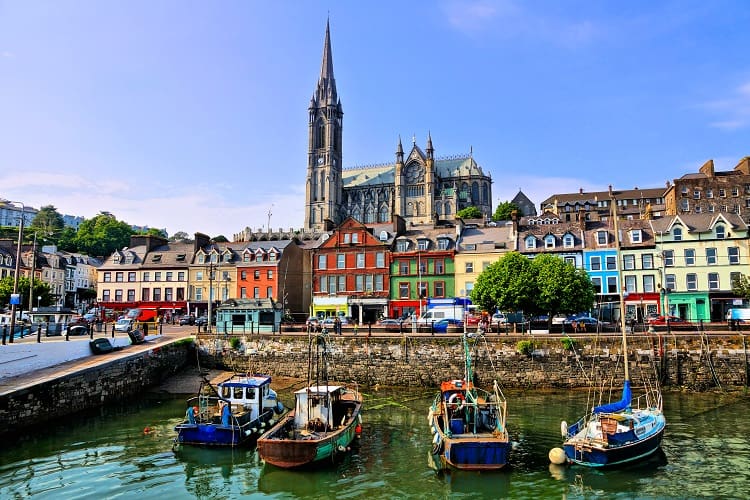
If you’re expecting a baby in the summer or spring, a winter vacation in Ireland is a dream come true! Ireland is one of the best countries to visit while pregnant.
Cozy up by a warm fire, marvel at the ancient castles, or walk along the endless strand of beach.
The coastal city of Cork is pure magic. With rolling green hills, churches and cathedrals, and an array of museums, it’s all about tranquility.
And in case you don’t know, Ireland is all about wholesome, heartwarming food. Head to the English Market to soothe your cravings, where you can pick up some fresh cheese, fruits, and bread to keep the belly happy.
Click here to book your tour of food tasting around Cork.
Where To Stay In Cork During Your Babymoon
The Imperial Hotel Cork City is perfect for expectant parents. It is a gorgeous luxurious hotel . Their Junior Suit e is perfect for your stay. They also have a lovely spa where you can enjoy some pampering during your stay.

4. Byron Bay, Australia

If you are looking for safe places to travel while pregnant – which of course you are! Then look no further than beautiful Australia.
Australia is a great choice for pregnancy vacations. With so many fantastic holiday destinations and places to be seen, we’d have to say that Byron Bay is one of the favorites.
With its health-conscious attitude, mellow vibe, and white sand beaches. Boost up your energy and nutrients, with the superfood fruit selections, yummy mocktails ( mindful drinking for pregnant mamas) and gorgeous walks along the coast.
Day spas in Byron Bay are totally kitted out when it comes to pregnancy packages. Take your pick from facials, massages, and even some spiritual practices that all cater to the needs of the baby mama.
You could also enjoy some a beautiful road trip from Byron Bay. The scenic drive around here will take you along some beautiful beaches.
Where To Stay For Your Babymoon In Byron Bay
You can’t beat the boutique luxury of Aabi’s at Byron . The hotel is rated at 9.3/10 . It has stylish elegant rooms and a sweet little saltwater pool to enjoy. It also has a hot tub (better for your partner than preggy women).

It is located in the perfect spot – only a short walk to Jonson Street where you can find a range of yummy restaurants.
5. Vancouver Island, Canada

Looking for a babymoon trip that offers gorgeous landscapes and ample artistic beauty? What about picturesque lakes and waterfalls?
Vancouver Island, in British Columbia, has all of this – and more.
Book yourselves in for a time here and enjoy luxury accommodation with views over wide open spaces.
There are mineral pools, rejuvenating spas, and rustic log cabins to bring you close to nature and completely revitalize you.
Canada is one of the best places to travel during pregnancy because it is so safe, and disease-free and the country has a high medical quality of care.
Where To Stay For Your Babymoon On Vancouver Island
If you love a combination of both the beach as well as a pool, then we recommend The Beach Club Resort — Bellstar Hotels & Resorts .

The 4-star oceanfront offers easy access to the beach and an oceanfront restaurant . It includes an indoor pool and a full-service spa. Perfect for any babymoon.
6. Nantucket, Massachusetts
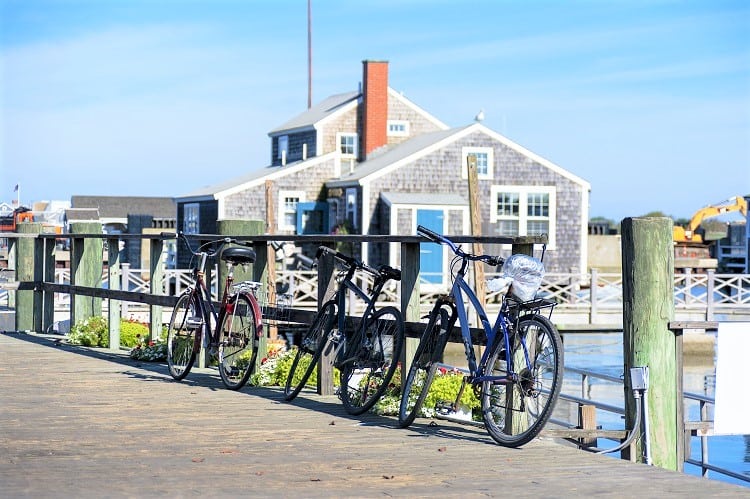
Another destination on our list of pregnancy-safe travel destinations is of course the United States.
If big crowds and cities aren’t your things, why not explore the idyllic town of Nantucket? A tiny island just off Cape Cod in Massachusetts that feels like its own world.
The cobblestoned streets, postcard-perfect scenery, quaint yacht harbors, and gorgeous beaches make it the perfect place for some downtime.
As for some ideas of what to do, the seashores are great for spending some time outdoors. It’s known as a prime whale-watching destination.
Here is a list of 15 US babymoon destinations , if Nantucket isn’t the spot for you.
Where To Stay In Nantucket
One of the best places you can stay in Nantucket is the White Elephant Hotel. They offer babymoon packages that include prenatal massages and coupons for spa treatments.

And guess what? Dad gets a little something, too. A complimentary cigar with a baby-themed ribbon.
Tip: Are you traveling around Massachusettes and staying in Boston too? You might be interested in what Food Tours in Boston are good to take part in.

7. Wales, United Kingdom
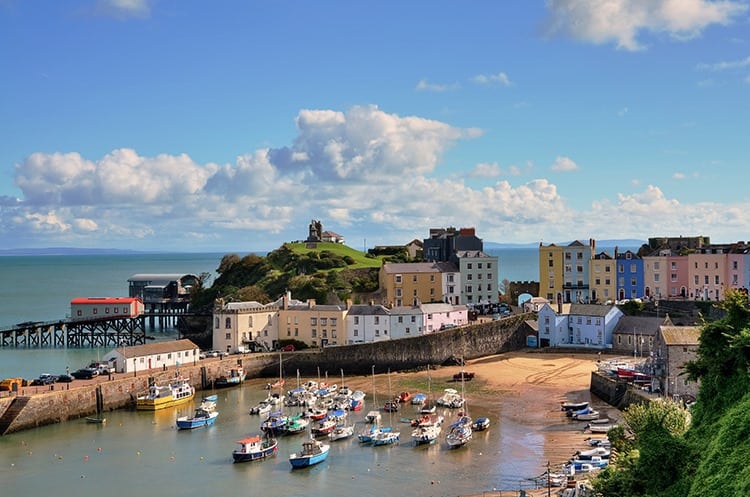
There’s no denying that the English countryside steals hearts.
Escape the business of London and head on a two-hour journey to whales. Explore the sleepy town and its magical villages with many untouched valleys.
If you are in the mood for some entertainment, don’t let the sleepiness of the town fool you. Head into Cardiff where you’ll find a healthy dose of fun and excitement.
Visit trendy neighborhoods and discover sites such as Cardiff Castle and the beautiful Cardiff Bay .
Click here to book your tour on a Hop-On Hop-Off Bus around Cardiff to see as much of the city.
Where To Stay In Cardiff For Your Babyboom
If you are looking for a hotel to stay at during a “babymoon” in Cardiff, Wales, then consider the Park Plaza Cardiff Hotel. It offers luxurious rooms and amenities perfect for couples looking for some rest and relaxation before their baby arrives.

8. Amsterdam, The Netherlands
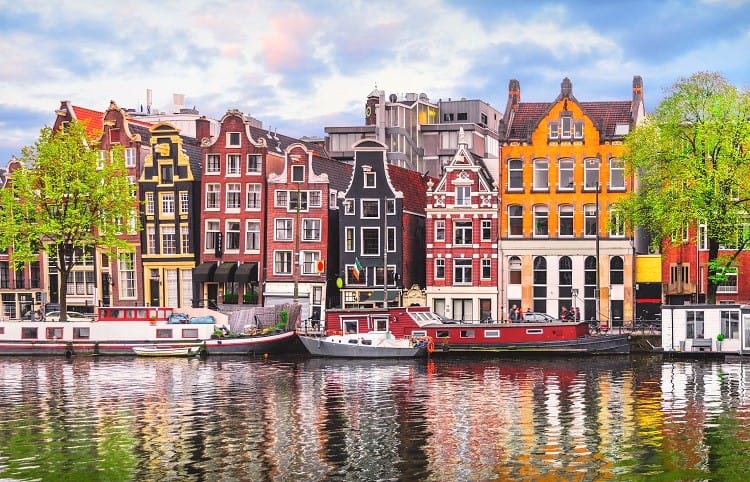
The Netherlands is incredibly tiny, so Amsterdam is an ideal base spot for touring the Dutch landscape.
What we love about Holland is that almost everyone speaks English. The people are friendly, the culture is unique and for a country so small, it has so much to offer!
Visit the tulip fields and feast your eyes on thousands of colorful tulips that line the cities. Stop at the markets for your afternoon snacks. Visit the city of Museums and discover the arts of Van Gogh, Banksy, and Rembrandt .
There is a whole range of wonderful Amsterdam attractions to keep you busy if you to love to explore.
Click here to book your tour of the Keukenhof tulip fields just outside of Amsterdam.
Where To Stay For Your Babymoon In Amsterdam
For 4-star luxury , the best choice is Hotel Estheréa . This hotel has the most stunning rooms I have seen .

It is set along the Singel canal in the center of Amsterdam and some rooms have pretty canal views . It is in the perfect location for walking and sightseeing.
9. Palm Springs, California

With a pleasant climate and a laid-back attitude, California has a variety of exciting cities for pregnant vacations.
One of the best cities to check out would have to be Palm Springs.
You’ll come across plenty of exciting activities that are pregnancy-friendly.
Glide along the Palm Springs Aerial Tramway and discover the dramatic desert settings.
Gaze at the art at the Palm Spring Art Museum or do your fair share of shopping at the ‘Rodeo Drive of the Desert’.
When you’re not gawing at the mountainous views, find a beautiful trail to walk along or visit the quaint nearby towns.
Where To Stay For Your Babymoon In Palm Spring
If you are looking for a hotel in Palm Springs for a babymoon stay, consider staying at the Omni Rancho Las Palmas Resort & Spa .

This luxurious resort boasts beautiful grounds and amenities, such as a 27-hole golf course, spa services, three pools (including an adult-only pool), and a lazy river .
10. Cape Town, South Africa
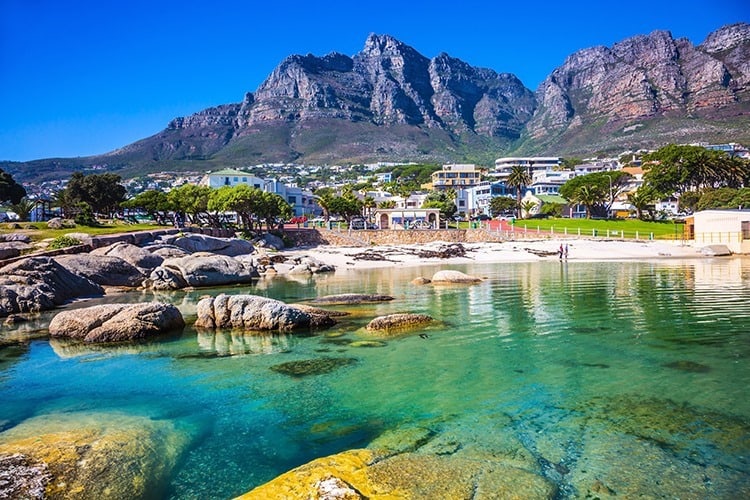
Babymoon trips differ for each couple, since not every traveler is after the same experience.
The great thing about a visit to South Africa , is that you can experience a collection of holiday types in one place.
Now whilst you definitely need to avoid areas that have malaria in South Africa, Cape Town is malaria free.
Cape Town is an absolutely stunning destination to visit. The views over Table Mountain just never stop to amaze. And there is such a wide variety of activities that a pregnant momma can enjoy.
Enjoy a trip up to the top of Table Mountain for some glorious views (easy to do with cable cars).
Laze around and soak up some sun on Camps Bay beach or maybe say hello to the gorgeous little penguins at Boulders Beach.
There are some absolutely beautiful walks or hikes at the Cape of Good Hope and the drive there is truly gorgeous!
Whilst you might not be able to enjoy sipping on wine just yet, the wineries around Franschhoek and Stellenbosch are beautiful. Head out and have a delicious lunch at one of the popular vineyards there.
Here is a fabulous post full of ideas for things to do in Cape Town .
Where To Stay For Your Babymoon In Cape Town
If you are looking for a place to stay in Cape Town for your babymoon, we suggest The Bay Hotel . It has a beautiful view of the ocean and many amenities like a spa (as well as in-room massages) and four pools .

The rooms are spacious and comfortable , perfect for a relaxing stay. Plus, the hotel staff will make sure you have everything you need to make your babymoon special.
11. Iceland

Perhaps not an obvious choice, but Iceland actually offers a splendid babymoon vacation. There are so many reasons why you should visit Iceland.
Iceland is a safe destination, with almost zero crime, and absolutely no mosquitos.
Iceland is a stunning country full of amazing sights, activities, and experiences that make it one of the most captivating places to visit in the world.
From the iconic Blue Lagoon to incredible glaciers, Iceland’s natural beauty is awe-inspiring. Not to mention the majestic waterfalls, hot springs, geysers, and volcanoes scattered across the land.
If you’re looking for a unique way to explore Iceland, take a day trip out to the Westfjords. These stunning fjords offer breathtaking views, secluded beaches, and plenty of exciting activities.
And if you’re lucky, you might even spot some of the native wildlife like whales and puffins!
While not the cheapest spot to go on a babymoon, this offers a glorious change from the usual tropical island travel.
Where To Stay For Your Babymoon In Iceland
If you are looking for a babymoon in Iceland, consider staying at the Hotel Ranga . It is an excellent choice with cozy rooms and beautiful views . Their staff will ensure that your stay is comfortable and relaxing.

Plus, you can enjoy a wide range of activities onsite, such as a stargazing observatory , spa treatments , and horseback riding (check with your doctor if it is safe for you to enjoy horseback riding).
12. Bahamas
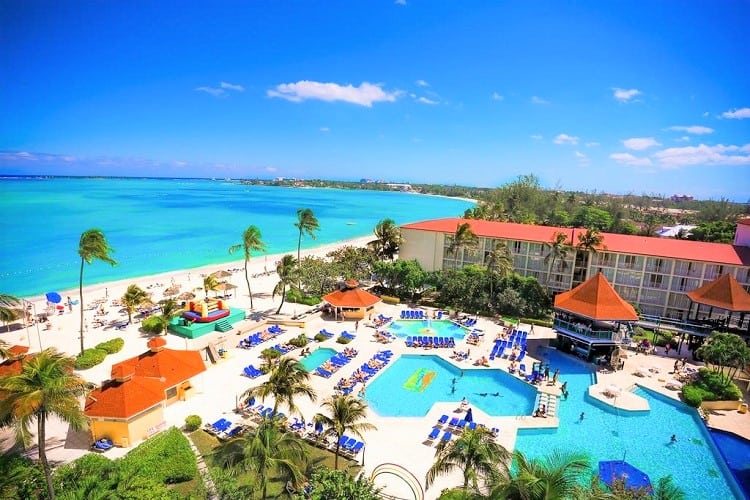
The Bahamas have been cleared of the Zika virus risk since early 2018, and now offer babymoon bliss for many.
This is also a great spot for USA travelers since the flight is short and there won’t be too much extra travel time.
The Bahamas is the perfect destination for a babymoon. With its beautiful crystal-clear waters, warm sunny days, and luxurious resorts, the Bahamas are sure to provide the perfect backdrop for a memorable babymoon.
The islands offer a wide range of activities, from snorkeling to exploring the local culture and cuisine.
You can also take some time to relax and reconnect with your partner while taking in the stunning views of the turquoise waters.
Where To Stay For Your Babymoon In The Bahamas
Margaritaville Beach Resort Nassau in the Bahamas is a great place for parents-to-be to go for a special vacation before their baby arrives.

From the ultimate spa experience to fine dining , there’s something for everyone at Margaritaville Beach Resort Nassau. And with its beautiful beachfront accommodations and world-class service , you won’t have to worry about a thing!
13. Greek Islands

There is no risk for malaria in the tourist areas of Greece, but do practice caution when visiting the agricultural regions from May to October as the summer conditions bring more mosquitoes. The country also remains Zika-free.
You’re truly spoiled for choice in Greece as it offers rich history, vibrant culture, and alluring beaches in abundance.
Thanks to its gorgeous scenery, warm weather, and laid-back atmosphere, it’s the ideal babymoon escape.
Unwind and soak up some sun on one of the island’s many glistening beaches. Many of the Greek isles boast trendy beach clubs and exciting boat trips such as this thrilling volcanic islands cruise .
Note: There are quite a few steps in some of the main cities which you might want to avoid depending on your mobility.
If you were wondering where exactly to go— Mykonos , Corfu , Naxos, Athens , Santorini , Zakynthos , Kefalonia , and Crete are all excellent options while pregnant.
Find a full list of the best places to visit in Greece for your first trip here.
Where To Stay For Your Babymoon In Santorini
If you are looking for a place to stay in Santorini for your babymoon, we recommend the Canaves Oia Suites . It is a beautiful hotel and it has amazing views of the Mediterranean Sea .
The hotel also has two amazing restaurants with an incredible selection of Greek and international dishes. The staff is friendly and attentive, and the rooms are spacious and well-appointed – make sure you grab one with its own private plunge pool.

You will not regret choosing this luxurious option for your babymoon in Santorini!
BIG Tip: Yes, we have you covered here. Check out our list of best hotels in Santorini with a private pool .
14. Mauritius

Mauritius can be an unforgettable getaway during a stressful pregnancy. There are fantastic spa facilities and an array of restaurants offering tantalizing local cuisine and a laid-back vibe.
With all the lush forests, epic waterfalls, and tropical climate, you can see why they call this Paradise Island. While there, enjoy a thrilling dolphin cruise or head to some of the best beaches in Mauritius such as the Flic en Flac and Grand Baie.
This island has an enticing blend of cultures and cuisine that makes it so unique. For a taste, visit Le Capitaine, Escale Creole, or Le Pescatore, among the top restaurants.
Mauritius is known for its unmatched hikes that often end in a beguiling waterfall sight. You can trek the Pont Naturel or Le Souffleur and Savinia Beach trails for a leisurely walk in under an hour.
Where To Stay For Your Babymoon In Mauritius
If you are looking for a hotel in Mauritius for a babymoon, consider The Oberoi , Mauritius. It is an award-winning resort that offers luxurious accommodations with stunning views of the Indian Ocean.

The resort also offers an array of activities and amenities, including a spa, fitness center, swimming pools , and private beach access . The Oberoi is the perfect escape for a romantic getaway or Babymoon.
15. Mallorca, Spain
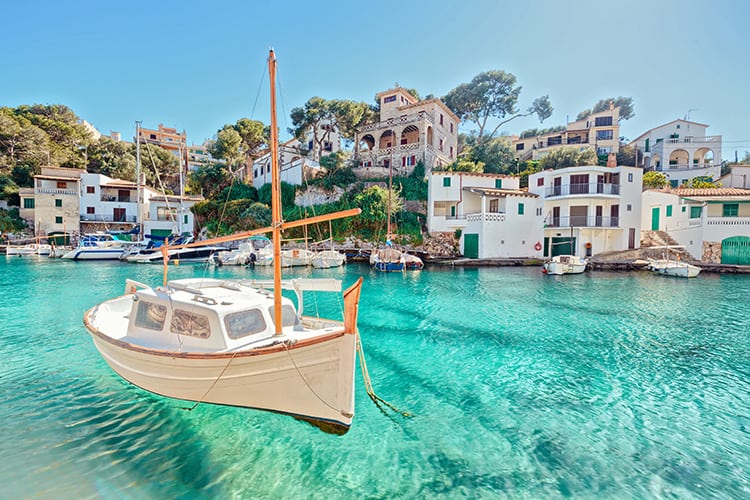
Mallorca is quite an obvious choice for many when it comes to all forms of vacation. Whether it be for honeymoons or babymoons, this destination surely won’t disappoint.
While Mallorca is a safe destination for pregnant mamas, it would be best to avoid its tap water.
This island is a beach paradise with many hidden gems and coves to explore. Its calm turquoise waters beckon, and the weather won’t let you down.
Apart from the sandy beaches covering its long stretch of coastline is the majestic Tramuntana Mountains, a UNESCO World Heritage Site. These limestone mountains are home to breathtaking viewpoints, wineries, and charming villages you can explore.
You’re guaranteed a leisurely affair between its stunning beaches, luxurious resorts, and quaint mountain villages.
Where To Stay For Your Babymoon In Mallorca
We recommend staying at the Hotel Sant Francesc in Mallorca. The hotel is also conveniently located in the heart of Palma , so you can walk around and explore at your leisure.

Plus, it’s close to some of Mallorca’s most beautiful beaches for some much-needed relaxation. For something really special, book a romantic dinner on their rooftop terrace with stunning views of the old city .
The hotel also offers spa treatments for couples so you can truly enjoy your time together.
16. The Florida Keys
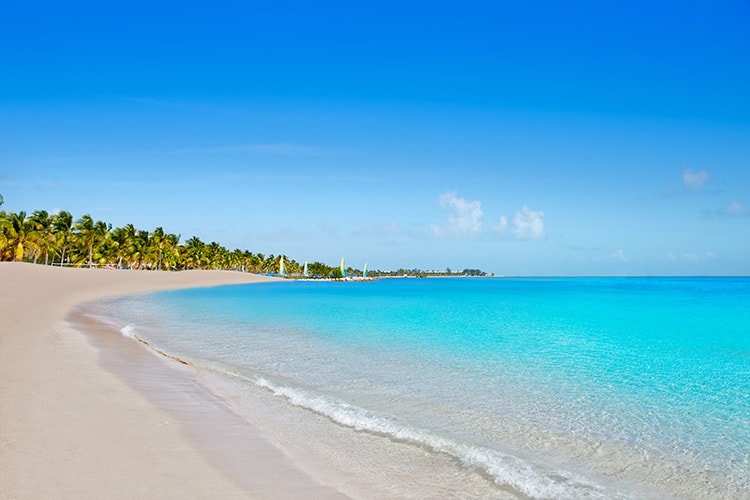
If you crave some relaxation in a peaceful and safe environment, then you can’t go wrong with the Florida Keys. This is a coral cay archipelago just off Florida’s southern coast.
You can spend your days dozing off on a beach—Key Largo’s beautiful beachside comes highly recommended. Key West also offers balmy beaches, conch-style architecture to admire, and historic sites.
Visiting Bahia Honda State Park is a must if you want to experience a beach haven with a marine sanctuary. Then pop in at the Hemingway Home and Museum or Dolphin Research center for a fun and knowledgeable activity.
The Florida Keys has plenty of restaurants offering sublime meals and views dotted along its keys. Sadly most of these will offer tons of seafood, but you’re sure to find a delicious alternative, such as the famous Key lime pie.
Where To Stay For Your Babymoon In Florida Keys
The Capitana Key West is a luxury waterfront resort located in Key West, Florida. The resort features a variety of amenities, including a private beach, a swimming pool, a spa, and several restaurants and bars.

For a babymoon, the resort offers a variety of packages, including a Babymoon Package that includes accommodations, a couples massage, a bottle of sparkling cider, and a gift for the baby.
17. Menton, France
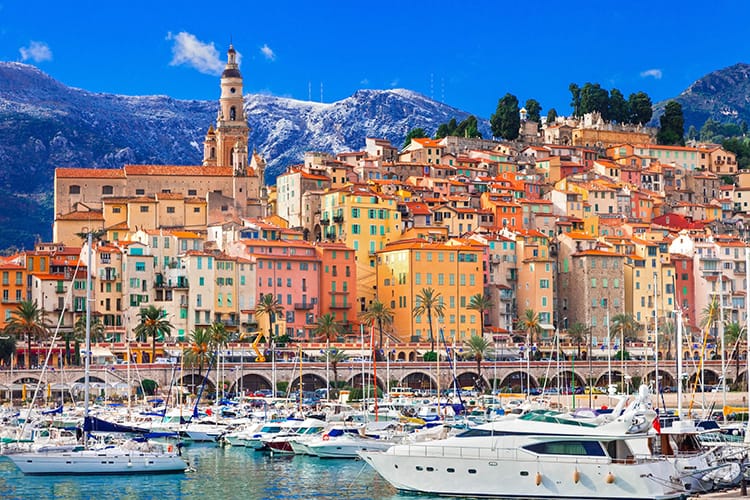
Menton is a quaint, charming town, and a hidden gem for now, on the French Riviera between Monaco and Italy.
Known for its gorgeous gardens, sunny weather (316 days of sunshine), and Mediterranean cuisine, you can see why this destination is growing in popularity. And for our expecting mommas, it’s totally safe and has a quiet atmosphere.
This town’s enchanting, colorful buildings reflect beautifully on its crystal-clear shores. While Menton’s beauty might lure you in, all the relaxing activities and beautiful sites will entice you to stay.
You can’t visit Menton without strolling through its ethereal gardens. Make your way to Jardins Biovès or Val Rahmeh-Menton Botanical Garden for some magical, camera-worthy scenery.
Where To Stay For Your Babymoon In Menton
Best Western Premier Hotel Prince de Galles is a 4-star hotel located in the heart of Menton . The hotel is situated just a few steps from the beach and within walking distance of the town’s main attractions.

The hotel offers a range of amenities, including a restaurant, a bar, a fitness center, and a spa. The spa features a sauna, a steam room, and a relaxation area , making it an ideal place to unwind during your babymoon.

Another destination that belongs on our list of the best places to visit when pregnant is Norway.
The welcoming nature of Norwegians, high levels of safety, and cozy cabins make Norway an obvious choice for mums-to-be.
Norway is home to postcard-like islands, exceptional wildlife, and numerous enchanting fjords. While it’s primarily a skiing, hiking, and fishing destination, there are still plenty of easy-going things to pick up.
You simply must drive out to Tromsø to catch a glimpse of the Northern Lights. In fact, it’s the best place in the world to see this glowing wonder.
Other relaxed activities include wandering the Viking Ship Museum or strolling through Vigeland Park.
Norway boasts a slew of Instagrammable cafes where the locals are just as warm and sweet as the Nordic-style coffee.
19. Portugal

Portugal is a top destination in the world thanks to its robust blend of architectural designs and epic beach spots.
It’s also safe and friendly, with many places allowing mums-to-be to skip lines (yay). Portugal is a hit amongst wine lovers, avid beachgoers, and history buffs, but now it can be your favorite baby mooning destination.
After lounging on famous beaches such as Porto, Lagos, or Albufeira, you can enjoy a stroll along the cobblestone streets while taking in picturesque buildings.
Portugal has various historical landmarks, such as Belém Tower and Castelo de S. Jorge, which you can spend hours exploring.
This beautiful country boasts 300-plus days of sun so that you can show off your baby bump with daring summer outfits (*wink*).
Where To Stay For Your Babymoon In Portugal
Vila Vita Parc Resort & Spa is located on a stunning cliff-top setting overlooking the Atlantic Ocean .
Their Vila Vita Parc’s spa is one of the best in Portugal, offering a wide range of treatments including pre-natal massages that will help you unwind and relax during your babymoon.

The resort also has several restaurants, including two Michelin-starred options, that offer a variety of cuisines to satisfy any cravings you may have during your pregnancy.
20. Whitsundays, Australia

Escaping to one of the beautiful resorts on Whitsundays will do you wonders. Once there, you can take in the rugged, green-clad islands surrounded by azure waters and soft white sand.
Whitsundays is a dreamy location offering seclusion and tranquility to those in need.
We highly recommend booking yourself into an all-inclusive resort where you can indulge in spa sessions, massages, and fine dining with ocean views. If you are after seclusion and luxury we recommend you stay on Hayman Island.
But if you want to research the islands more, you can see a great comparison post on Daydream Island vs Hayman Island vs Hamilton Island here.
Experience the ultimate tropical bliss by sinking your toes into the soft silica sand of Whitehaven Beach, one of the world’s best beaches.
Unlike scuba diving, snorkeling is safe while pregnant which you can take up at the Great Barrier Reef.
Where to Stay On The Whitsundays For Luxury and Seclusion
For a truly luxury stay we can’t recommend the InterContinental Hayman Island Resort enough. We booked a room that had access to the swimming pool and it was perfect.

The resort also has a range of amenities, including a spa, swimming pools, restaurants and bars , and access to a private beach.
The beach on this island is stunning as well and you can enjoy some really fun day trips from here as well.
21. Sardinia, Italy
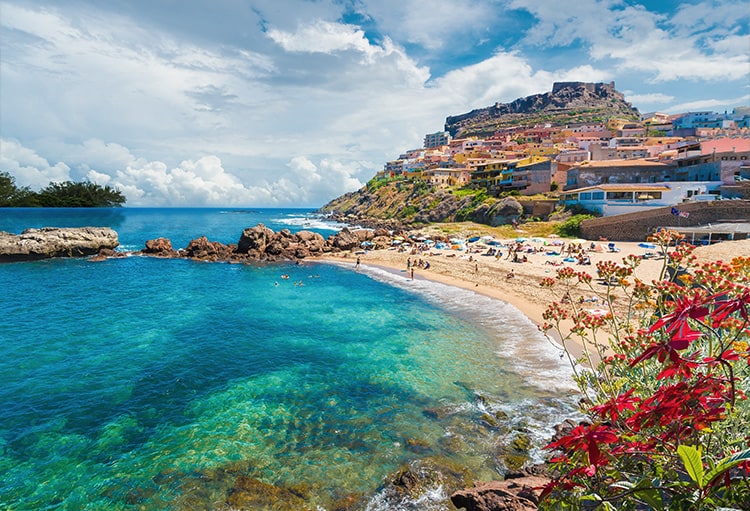
A pre-baby break filled with sunshine and tranquility is promised in Sardinia, Italy.
This large Italian island boasts an extensive unspoiled coastline covered in sandy beaches for relaxing.
While mosquitoes become a problem in Sardinia during its warmer months (May to September), traveling anywhere in Italy without worrying about mosquito diseases is still safe.
This fascinating rocky island overlooks warm Mediterranean waters. It’s often forgotten thanks to the more famous Sicily, but Sardinia is one of Italy’s most diverse and gorgeous places.
You can witness the rich cultural heritage of Sardinia through its quaint coastal villages and unique, vibrant food.
Some of the top attractions on this island include the San Benedetto market, Porto Istana Beach, Capo Caccia Vertical Cliffs, and Spiaggia Rena Bianca Beach.
You can find a list of all the best beaches to visit in Sardinia here.
Where To Stay In Sardian For Your Babymoon
Sardinia has many beautiful romantic luxury resorts , but one that stands out for a babymoon is the Hotel Romazzino , a Luxury Collection Hotel, located in Costa Smeralda.
This hotel offers stunning views of the Mediterranean Sea and the beautiful white sand beach of Romazzino.

The rooms and suites are elegantly decorated and equipped with all the modern amenities that you would expect from a luxury resort, including private terraces or balconies with sea views .
22. New Zealand

New Zealand is perfectly safe for expecting moms. However, you do need to travel with a letter from a specialist doctor or midwife confirming that you’re OK to fly. Otherwise, most airlines won’t let you fly if you’re far along or have any complications.
Still, if you’re in the mid-pregnancy stage, we highly recommend spending a few days in this magical island country.
Apart from being one of the safest countries in the world, Kiwis are very welcoming and friendly to tourists. Admire the picturesque landscape and enjoy the unique vibe influenced by the Māori culture.
New Zealand is the home of adventures and the location of Real Middle earth™, fascinating fauna and flora, world-famous coffee, and unmissable fjords.
Here is a fantastic cultural tour around New Zealand to see the mystical Mitai Maori Village. Here is a handy post with the best places to visit in New Zealand so you can pick the perfect base for your vacation.
Where To Stay In New Zealand For Your Babymoon
New Zealand offers a range of romantic luxury resorts for a babymoon, but one that stands out is Huka Lodge in Taupo.

Huka Lodge is a world-renowned luxury resort that offers a perfect romantic getaway for couples. It is located on the banks of the Waikato River and is surrounded by beautiful gardens and breathtaking natural scenery.
The resort offers a range of luxurious accommodations , including suites, cottages, and a private Owner’s Cottage.
23. Croatia
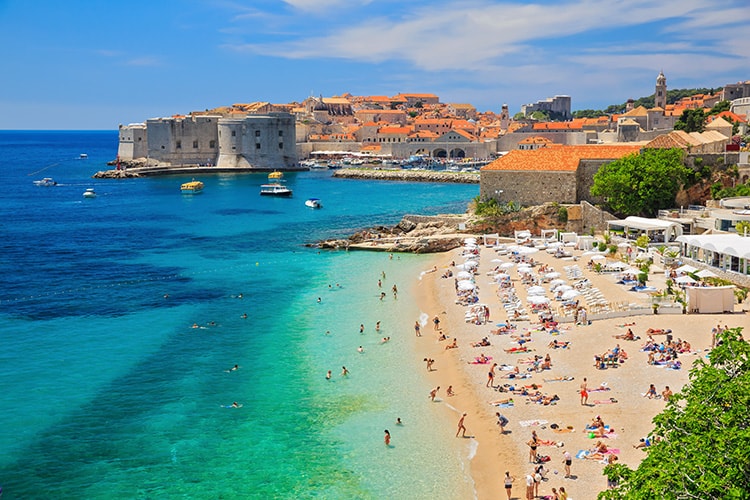
Croatia is yet another fantastic destination for your babymoon. It’s safe and has a lively atmosphere, being dubbed “the new Ibiza” of Europe.
Make sure you have a valid doctor’s approval if you’re more than 28 weeks and less than 36 weeks pregnant.
Lying along the Adriatic Sea, this country consists of scenic pebbled beaches kissed by crystal clear waters. Moving further away from these precious coastlines, you’ll come across the captivating architecture of Croatian cities.
These areas encompass a blend of Romanesque, Renaissance, and Baroque architectural styles. So you definitely want your camera ready as you take it all in, including the handful of museums.
The Museum of Illusions, Museum of Broken Relationships, and Museum of Hangovers are all pretty interesting, to say the least!
Where To Stay In Croatia For Your Babymoon
One highly recommended romantic luxury beachfront resort for a babymoon in Croatia is the Dubrovnik Palace Hotel .
Located on the Lapad peninsula just a short distance from Dubrovnik’s Old Town , this resort offers stunning views of the Adriatic Sea.

The resort features elegant rooms and suites with modern amenities and private balconies overlooking the sea.
The hotel also has a spa with a range of treatments designed for expectant mothers , as well as several restaurants serving delicious cuisine.
In case you are venturing out around Croatia, and planning to stay in Split, we have a handy blog post for you about the best luxury hotels in Split . Check it out.
24. Turkey

While Turkey does have mosquitoes, it has never had any cases of zika. That fact, combined with the beauty of the Turquoise Coast, a fascinating history, and delicious food, makes Turkey a fantastic babymoon destination.
First on the menu, a Bosphorus ferry rides atop the waters where the Black and Mediterranean seas meet. You should also stop by the Aqua Vega Aquarium, an underwater aquarium complete with exotic marine life.
Silence those intense cravings by sampling some of the best flavors courtesy of the vibrant Turkish cuisine. Not to mention, Turkish dishes are nutrient-rich and feature lots of cooked veggies (perfect for growing tummies).
Turks often indulge in hummus, grilled meat, pastries and vegetables such as eggplant and tomatoes. The Tarihi Bankalar Lokantası, Konyali Restaurant, and Deraliye Ottoman Cuisine are a few of the excellent options to get your hands on authentic Turkish food.
Don’t forget to grab some souvenirs from one of the many colorful bazaars here.
Helpful to Know: Here is a great post with Turkey travel advice and tips that you should know before you go.
Where To Stay In Turkey For Your Babymoon
One option for a romantic luxury beachfront resort for a babymoon in Turkey is the Mandarin Oriental Bodrum . This resort is located on the Bodrum Peninsula and offers stunning views of the Aegean Sea.

The resort features private beach access, a spa, multiple restaurants , and spacious suites with private terraces or balconies.

Poland offers an exciting blend of breathtaking scenery, timeless architecture, and captivating culture. For a magical city adventure, visit Krakow, or if you want your breath taken away with majestic mountains, head to Zakopane.
In Krakow, stop by the stunning Wawek Royal Castle for splendid greenery and amazing architecture. If you’re a history buff, you’ll enjoy stopping by the city’s most popular sites and getting some bits of history onboard a chauffeured electric car.
There are plenty of other things to do in Krakow , however, my favorite thing to do there is to simply stroll around and enjoy the streets, architecture, and atmosphere.
While a mountainous region that screams adventure, Zakopane actually has several easy-going activities on offer. Instead of hiking your way around Tatra National Park, you can take in natural beauty from the comfort of the Kasprowy Wierch Cable Car Ride.
You can also stroll the pedestrian-only street of Krupowki, which has markets with cool trinkets and great grub. During December, you’ll find an incredible Christmas Tree that lights up the street.
You can find more suggestions of things to do in Zakopane for your stay here.
Where To Stay In Zakopane For Your Babymoon
Hotel Rysy is located in the heart of the Tatra Mountains, and offers stunning views of the surrounding landscape.

The rooms at Hotel Rysy are spacious and luxurious , with plush beds and modern amenities. The hotel also has a spa , which offers a range of treatments and massages that are perfect for expectant mothers.
You (or your partner as it is safer for pregnant mommas to not get too hot) can relax in the hot tub, sauna, or steam room.
How to Choose the Best Babymoon Destination
The best place to travel when pregnant will depend on where you will be traveling from, as well as what you are in need of from your trip. You can definitely enjoy and international trip if you head off early enough in your pregnancy.
Choosing your babymoon destination will mean considering a few things.
- Weather : This will depend on which season you’re pregnant in, and which climate you enjoy most. If you’re having a winter baby, and you’re tired of being bundled up, you’re probably going to do better in a more tropical environment for your babymoon.
- Travel distance : Wondering where to travel when pregnant? Depending on which trimester you’re in, you may not want to travel too far from home (and I would skip destinations that require a long flight). So picking a destination only a short flight or car trip away would be best.

- Health concerns : While pregnant, you want to stay in areas that have good healthcare, just in case you need a check-up. It’s also advisable to choose destinations that are free of the Zika virus to avoid putting you and your baby at risk. This is why we recommend you use our zika-free babymoon 2024 list of destinations above.
- Babymoon packages: Babymoons have become more popular in the last few years. You’ll find resorts and hotels offering vacation packages that suit you and your little bump perfectly (and your partner, too, of course).
- Your bucket list : While having a baby doesn’t mean you have to stop traveling, it may mean your travel plans change for a while. So why not use this babymoon to tick off a destination on your bucket list?
Top Tips For Your Trip

Once you have chosen a destination from our list of the best places to visit while pregnant, it is important to start thinking about how you can travel safely.
- The best time to travel is during the second trimester and early in the third trimester. The first trimester works for relaxing babymoon trips as most women feel nauseous and super tired which makes exploring and road-trips ticky. Don’t travel close to your due date!
- Many expectant mothers find that they need to take more frequent breaks than usual, and so it is important to plan your trip accordingly. Try to schedule some down time into your itinerary so that you can rest when you need to.
- If you are flying, I highly recommend you book an aisle seat so you can get up freely. You will need breaks to use the restroom and also to just shake out the aches and pains from sitting too long in a cramped position whilst pregnant.
- If you’re traveling by car, it’s important to plan frequent stops so you can stretch your legs, use the restroom, and grab something to eat.
- Some pregnant women (especially in the third trimester) should also avoid strenuous activity, so consider things like walking tours or light sightseeing instead of more strenuous activities like hiking.
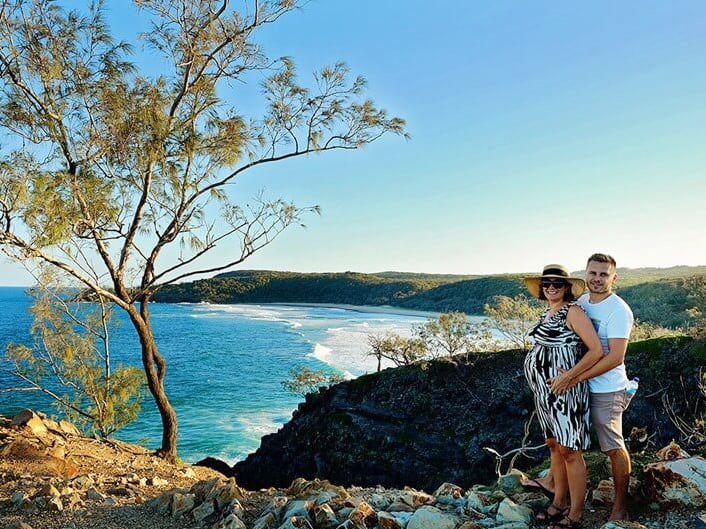
- If you’ll be doing lots of walking on your vacation, wear comfortable shoes with good arch support as this will help support your growing belly and reduce strain on your feet and back.
- Be sure to stay hydrated and eat regularly, especially if you are prone to morning sickness. Pack snacks and drinks with you so that you can have something on hand when you start to feel nauseous.
- Wearing comfortable clothing is also important, as you will likely be bloated and uncomfortable at times during your pregnancy. Wear loose fitting clothes and bring a scarf or shawl to cover up if you start to feel too warm.
- Flying while pregnant poses a few potential risks. One of the most dangerous risks is deep vein thrombosis (DVT). To reduce the risk of DVT while flying, be sure to drink plenty of water, get up and stretch regularly, and wear compression socks.
Final Thoughts On Best Places To Travel Pregnant
So that concludes 25 of the best places to go on a babymoon. Of course, it depends on your preference, but as you can see, being pregnant doesn’t necessarily mean you have to postpone your travel plans.
I think Europe is one of the safest places to go before the baby arrives, but all the destinations on our list are safe countries to visit while pregnant (safe from Zika, malaria, and other diseases like Rubella).
Speaking to your doctor before your travels is always a good idea. And once they’ve given you the all-clear, let the traveling commence.
And if you’re really feeling skeptical about flying pregnant, domestic travel is a great way to still squeeze in that travel time. And don’t forget to grab travel insurance , so that you can travel with peace of mind.
You might also like to check out my tips for traveling while pregnant for my personal experience (and tips) from traveling during each of my trimesters.

Andrzej Ejmont
2024 - Wanderlust Storytellers. All Rights Reserved.
About Us | Contact Us | Work with Us | Privacy Policy | Disclaimer
* Disclaimer: Wanderluststorytellers.com is a participant in the Amazon Services LLC Associates Program, an affiliate advertising program designed to provide a means for sites to earn advertising fees by advertising and linking to amazon.com and other Amazon sites.
- Getting pregnant
- Preschooler
- Life as a parent
- Baby essentials
- Find your birth club
- Free antenatal classes
- Meet local parents & parents-to-be
- See all in Community
- Ovulation calculator
- Am I pregnant quiz
- How to get pregnant fast
- Best sex positions
- Signs of pregnancy
- How many days after your period can you get pregnant?
- How age affects fertility
- Very early signs of pregnancy
- What fertile cervical mucus looks like
- Think you're pregnant but the test is negative?
- Faint line on pregnancy test
- See all in Getting pregnant
- Pregnancy week by week
- How big is my baby?
- Due date calculator
- Baby movements week by week
- Symptoms you should never ignore
- Hospital bag checklist
- Signs of labour
- Your baby's position in the womb
- Baby gender predictor
- Vaginal spotting
- Fetal development chart
- See all in Pregnancy
- Baby names finder
- Baby name inspiration
- Popular baby names 2022
- Numerology calculator
- Gender-neutral names
- Old-fashioned names
- See all in Baby names
- Your baby week by week
- Baby milestones by month
- Baby rash types
- Baby poop chart
- Ways to soothe a crying baby
- Safe co-sleeping
- Teething signs
- Growth spurts
- See all in Baby
- Your toddler month by month
- Toddler development milestones
- Dealing with tantrums
- Toddler meals
- Food & fussy eating
- When to start potty training
- Moving from a cot to a bed
- Help your child sleep through
- Games & activities
- Vomiting: what's normal?
- See all in Toddler
- Your child month by month
- Food ideas & nutrition
- How kids learn to share
- Coping with aggression
- Bedtime battles
- Anxiety in children
- Dealing with public tantrums
- Great play ideas
- Is your child ready for school?Top tips for starting school
- See all in Preschooler
- Postnatal symptoms to watch out for
- Stitches after birth
- Postpartum blood clots
- Baby showers
- Sex secrets for parents
- See all in Life as a parent
- Best baby products
- Best formula and bottles for a windy baby
- Best car seats if you need three to fit
- Best nappies
- Best Moses baskets
- Best baby registries
- Best baby sleeping bags
- Best baby humidifier
- Best baby monitors
- Best baby bath seat
- Best baby food
- See all in Baby essentials
- Back pain in pregnancy
- Pelvic girdle pain
- Perineal massage
- Signs you're having a boy
- Signs you're having a girl
- Can you take fish oil while pregnant?
- 18 weeks pregnant bump
- Can you eat salami when pregnant?
- Edwards' syndrome
- Missed miscarriage
- Should I harvest my colostrum?
- Rhesus positive vs. Rhesus negative
- What do contractions feel like?
- Hunger in early pregnancy
- First poop after birth
- When do babies sit up?
- When can babies have salt?
- MMR vaccine rash
- Vaping while breastfeeding
- How to transition from formula to milk
- When do babies start grabbing things?
- Sperm allergy: can sperm cause itching?
- How long after taking folic acid can I get pregnant?
Pregnancy travel: how to decide where to go

Travel in the first trimester: rest and relaxation
Travel in the second trimester: have a beach break, travel in the third trimester: pamper break, where not to go in pregnancy.
Was this article helpful?
Parents' tips: managing your weight during pregnancy

Endometriosis

Creamy haddock and salmon pie

Broccoli and pea soup

Where to go next

Log in with user name:
Log in with social media:
Get FREE email communications from Fodor's Travel, covering must-see travel destinations, expert trip planning advice, and travel inspiration to fuel your passion.
Pregnant Trip to Caribbean - Recommendations?
Contact Us - Manage Preferences - Archive - Advertising - Cookie Policy - Privacy Statement - Do Not Sell or Share My Personal Information -
Subscribe or renew today
Every print subscription comes with full digital access
Science News
Cdc issues travel guidelines for pregnant women.

SAFE TRAVELS To avoid Zika virus infection, the CDC advises, pregnant women should steer clear of places the virus has cropped up, including many countries in South and Central America and the Caribbean.
quintanilla/iStockphoto
Share this:
By Meghan Rosen
January 15, 2016 at 9:48 pm
Pregnant women should consider postponing travel to much of Latin America and the Caribbean. That’s the advice issued January 15 by the U.S. Centers for Disease Control and Prevention in Atlanta.
The goal is to prevent women from catching Zika virus, a mysterious mosquito-borne virus that has spread rapidly across Brazil in the last nine months. The number of infected people could be from 440,000 to 1,300,000 people, the European Center for Disease Prevention and Control has estimated.
Scientists suspect Zika virus may be to blame for the epidemic of birth defects Brazil has seen recently: From just October 22 to January 9 alone, 3,530 babies have been born with microcephaly, or abnormally small heads.
More Stories from Science News on Health & Medicine

Getting wild mosquitoes back to the lab alive takes a custom backpack

College students want to help during an opioid overdose but don’t know how

50 years ago, margarine’s ‘healthy’ reputation began to melt away

Irregular bone marrow cells may increase heart disease risk

Traces of bird flu are showing up in cow milk. Here’s what to know

Malaria parasites can evade rapid tests, threatening eradication goals

Rat cells grew in mice brains, and helped sniff out cookies

Pelvic exams at hospitals require written consent, new U.S. guidelines say
Subscribers, enter your e-mail address for full access to the Science News archives and digital editions.
Not a subscriber? Become one now .

Travel While Pregnant: 15 Best Places for a babymoon

Scheduling some travel while pregnant can be a thrilling and rejuvenating experience before the arrival of your child. However, selecting a country that meets your needs while being safe and comfortable can be difficult.
I’ve compiled a list of the 15 best places to travel while pregnant, ranging from relaxing beach holidays to cultural and historical sites, family-friendly vacations, and nature and outdoor areas. While there are many more destinations safe for travelling while pregnant such as Japan , Australia , New Zealand, etc., they are quite far away from Canada.
Credit card and points strategy for expecting couples
The places to travel while pregnant mentioned in this article can easily be booked with Aeroplan points.
Furthermore, if you do not have the necessary points to make your baby moon come true, you can quickly earn the required amount to any of the destinations by simply sign-up for one or two credit cards:
Some of these credit cards come with the first-year free, and some have a high fee that isn’t waived, but you should always think of that as the amount you need to pay to purchase those precious points. Paying $599 to gain enough points for your trip is much cheaper than $1,500!
® " href="https://milesopedia.com/en/go/amex-platinum-card/" rel="noindex">The Platinum Card ® is also a great card to do so as you can get a significant amount of Membership Rewards points in a short time, and in some cases, one card may be sufficient for both of you. Then, you can transfer those points to your preferred programs to book, whether it is Aeroplan , Avios, Flying Blue or other programs.
Paying a high fee for ® " href="https://milesopedia.com/en/go/amex-platinum-card/" rel="noindex">The Platinum Card ® can also be justified with the many travel perks the card provides, such as excellent travel insurance , access to over a thousand VIP lounges worldwide and much more.
Relaxing beach destinations for pregnant women
While the Zika outbreak has dialled down, physicians seem to have diverging opinions on whether to avoid some destinations or not while pregnant. Therefore, it is best to check with your doctor and assess your risk tolerance before considering them.
The following places are Zika-free so they are ideal for traveling while pregnant.
Hawaii, USA
Hawaii is a dream destination for many people, especially to travel while pregnant when looking for a relaxing beach vacation. The warm weather, calm ocean waters, and amazing beaches create a dreamy atmosphere perfect for relaxing and rejuvenation.
Pregnant travellers can enjoy various activities, including hiking, snorkelling, and surfing, in addition to chilling out on the beach.
Hawaii is very accessible with points, whether with Aeroplan or with travel rewards. Indeed, deals can be found both with Aeroplan and with cash prices, so make sure to check your valuation as cheap flights pop up frequently on Google Flights .
Greek Islands
The Greek Islands are another excellent choice for pregnant travellers looking for a peaceful and scenic beach getaway. These islands provide a serene and rejuvenating atmosphere that is great to travel while pregnant, with crystal clear waters, lovely blue and white-themed villages, and delicious cuisine.
You can visit historic sites, stroll through picturesque streets, or relax on the sand and soak up the rays. The Greek Islands are a top pick for pregnant travellers searching for a beach vacation, with a variety of islands to opt for, each with its own distinct charm.
This advice applies to all those looking for flights to Europe; when availability is scarce with points, try to find the cheapest entry points on the continent. Then, purchase a ticket on a low-cost carrier to reach your final destination.
The stunning coastline, world-class beaches, and gorgeous towns of Portugal make it an ideal destination for pregnant travellers seeking a mix of relaxation and culture. Indeed, the Algarve is exceptionally beautiful, and you can indulge in as many pasteis de nata as you want; Portuguese food may satisfy your pregnancy cravings!
You can visit historical sites such as the castles in Sintra, sample the succulent local cuisine, or just lay on the beach and take in the breathtaking scenery.
Cultural and historical destinations for expecting mothers
Some people, like myself, like to explore different cultures, so here are some suggestions for travel while pregnant destinations you can easily squeeze in before becoming a mother.
Morocco is an excellent choice for pregnant travellers seeking a cultural and historical trip. Morocco provides a one-of-a-kind and unforgettable travel experience with its vibrant markets, rich history, and stunning architecture. One activity I would suggest is a camel ride in the desert; check out tours on Viator !
You can spend your time exploring the bustling markets, marvelling at the millions of tiles on their buildings, or just soaking in the lively atmosphere of this fascinating country. Chefchaouen, or the Blue Medina, is an excellent place for a photo shoot in case you are looking for a unique way to immortalize your pregnancy.
London is an excellent destination to travel while pregnant if you seek a balance of culture and comfort. There are world-class museums (that are mostly free), galleries, and historical landmarks throughout the city, as well as cozy cafes and restaurants. Or relax in one of the city’s many parks and gardens.
You might think of London as a prime destination to use your Avios on British Airways. However, compare your different options, as Aeroplan might be better depending on the dates (off-peak or not).
New York City, USA
For pregnant travellers, New York City has an abundance of things to do and is also ideal for a short getaway if you do not want to take too much time off before embarking on maternity leave.
This bustling metropolis has something for everyone, from Broadway shows to huge department stores to iconic landmarks.
Croatia is a lovely place to travel while pregnant if you are looking for a mix of culture and natural beauty. The country is known for its amazing beaches, crystal-clear waters, and picturesque villages. It also has a rich history to explore, with ancient ruins and historic cities to visit; the Dubrovnik city walls are among my favourite experiences in all of my travels.
Italy is a popular country to travel while pregnant when searching for a combination of food, relaxation and culture. Italy has a lot to offer, from the charming canals of Venice to the historic streets of Rome.
It is known for its world-class cuisine, stunning architecture, and breathtaking natural beauty, such as the picturesque Amalfi Coast and Tuscany’s rolling hills.
Pregnant travellers can also go shopping in Milan or explore the art-filled city of Florence. Italy provides the ideal combination of relaxation, history, culture, and adventure for any expecting mother.
Spain is another popular pregnant women’s destination for those looking for warm weather, delectable cuisine, and cultural experiences. The country has a variety of activities available, ranging from exploring historical medieval sites to devouring an infinite number of tapas.
Barcelona has beautiful architecture, beaches, and world-class museums, whereas Madrid has a lively atmosphere with its bustling nightlife and art-filled streets.
Pregnant travellers seeking a more relaxed holiday can head to the southern coast, where they can enjoy relaxing beach vacations.
Nature and outdoor destinations for pregnant women
If you are active travellers, you will lust for the big outdoors even while expecting. Check with your physician, but there should be no problem with looking to travel while pregnant and hike if that is already something you are used to doing.
Alaska, USA
Alaska is an excellent choice for pregnant travellers looking for an outdoor adventure; you can either go independently or on a cruise from Vancouver.
Alaska, with its stunning natural beauty, glaciers, mountains, and wildlife, provides an unforgettable travel experience. Expectant mothers can enjoy the breathtaking scenery of Denali National Park or go whale watching in Juneau. You can also go on a scenic train ride or a kayaking excursion to get up close and personal with the wildlife.
The state’s pristine wilderness and unspoiled landscapes provide a peaceful haven for pregnant travellers looking to escape the hustle and bustle of daily life, especially if you are cruising.
If you fly to Vancouver for a cruise instead of Anchorage, you will avoid the air transportation charges for US flights .
Switzerland
The Swiss Alps have breathtaking views and are a tranquil haven to travel while pregnant . Hiking is one of the best outdoor activities available in the area. Expectant mothers can also take a scenic train ride through the mountains or explore the region’s charming towns and villages. In the summer, they can go on a relaxing boat ride on Lake Geneva or go hiking in the lush green hills.
Scotland is a breathtaking place for pregnant travellers seeking natural beauty and a peaceful retreat. Scotland has some of the most gorgeous landscapes in the world, from the rugged highlands to the stunning lochs.
The country is dotted with historic castles such as Eilean Donan Castle, charming towns, and picturesque villages, making it a great destination for those interested in learning about Scotland’s rich history and culture.
Furthermore, Scotland’s cuisine is famous for its fresh seafood, hearty stews, and traditional haggis, providing pregnant travellers with a unique culinary experience.
West Coast of Canada
The West Coast of Canada is ideal for pregnant travellers looking for a combination of natural beauty, culture, and outdoor adventure. The region’s coastal scenery is breathtaking, with rugged cliffs, pristine beaches, and lush rainforests.
It also has charming towns, vibrant cities, and world-renowned museums, so pregnant travellers will have plenty of cultural experiences. Furthermore, Canada’s West Coast is a haven for outdoor enthusiasts, with activities ranging from hiking and biking to kayaking and whale watching.
Family-friendly destinations while pregnant
While venturing into Europe can be a great babymoon destination, travelling far away can be strenuous if you are pregnant and have other children to manage. Indeed, pregnancy often comes with fatigue, and you may have to keep the other little ones entertained to avoid a bacon crisis.
Orlando, Florida, USA
Orlando is yet another family-friendly destination with many activities for pregnant travellers. It’s an ideal place for a fun-filled and memorable trip, with fantastic theme parks such as Disney World and Universal Studios. In addition to its theme parks, Orlando has excellent shopping and world-class restaurants.
San Diego, California, USA
San Diego is a family-friendly destination with a variety of activities for pregnant travellers. It’s an ideal holiday for those looking for a relaxing getaway, with over 70 miles of world-class beaches. The city also has family-friendly attractions such as the San Diego Zoo and SeaWorld, making it a perfect place for families.
In addition, San Diego’s thriving culinary scene offers a diverse range of dining options, from fresh seafood to Mexican cuisine, providing pregnant women with plenty of choices to satisfy their cravings.
Los Angeles is also close by in case you wish to spend some days at Disneyland or Universal Studios during this family babymoon holiday.
Precautions to take before travelling pregnant
Regarding the precautions to take when traveling while pregnant (insurance, vaccines, illnesses, destinations to watch out for, etc.), consult our following article:
Travelling while pregnant: how to plan your trip?
Bottom Line
Finally, travelling while pregnant can be an unforgettable and rejuvenating experience, and each of the 15 best places to travel while pregnant has something for everyone. These destinations cater to your needs, whether you want to relax on a beach, immerse yourself in a new culture, or explore the great outdoors.
However, before planning any trips while pregnant, prioritize your health and safety and consult your doctor. You can travel safely and enjoyably while pregnant if you take the necessary precautions.
Afterwards, you can start planning a credit card and points strategy for when the baby is there!
Did you take note of our ultimate traveller’s checklist ? It’ll come in handy to ensure you don’t forget anything before you leave and learn how to save money when planning your trips (with a downloadable pdf at the end!).
Have a great trip!

All posts by Aline
Suggested Reading
- Destination Guides
Travelling in pregnancy
With the proper precautions such as travel insurance, most women can travel safely well into their pregnancy.
Wherever you go, find out what healthcare facilities are at your destination in case you need urgent medical attention. It's a good idea to take your maternity medical records (sometimes called handheld notes) with you so you can give doctors the relevant information if necessary.
Find out more about getting healthcare abroad .
Make sure your travel insurance covers you for any eventuality, such as pregnancy-related medical care during labour, premature birth and the cost of changing the date of your return trip if you go into labour .
When to travel in pregnancy
Some women prefer not to travel in the first 12 weeks of pregnancy because of nausea and vomiting and feeling very tired during these early stages. The risk of miscarriage is also higher in the first 3 months, whether you're travelling or not.
Travelling in the final months of pregnancy can be tiring and uncomfortable. So, many women find the best time to travel or take a holiday is in mid-pregnancy, between 4 and 6 months.
Flying in pregnancy
Flying isn't harmful to you or your baby, but discuss any health issues or pregnancy complications with your midwife or doctor before you fly.
The chance of going into labour is naturally higher after 37 weeks (around 32 weeks if you're carrying twins), and some airlines won't let you fly towards the end of your pregnancy. Check with the airline for their policy on this.
After week 28 of pregnancy, the airline may ask for a letter from your doctor or midwife confirming your due date, and that you are not at risk of complications. You may have to pay for the letter and wait several weeks before you get it.
Long-distance travel (longer than 4 hours) carries a small risk of blood clots (deep vein thrombosis (DVT)) . If you fly, drink plenty of water and move about regularly – every 30 minutes or so. You can buy a pair of graduated compression or support stockings from the pharmacy, which will help reduce leg swelling.
Travel vaccinations when you're pregnant
Most vaccines that use live bacteria or viruses aren't recommended during pregnancy because of concerns that they could harm the baby in the womb.
However, some live travel vaccines may be considered during pregnancy if the risk of infection outweighs the risk of live vaccination. Ask your GP or midwife for advice about specific travel vaccinations. Non-live (inactivated) vaccines are safe to use in pregnancy.
Malaria tablets
Some anti-malaria tablets aren't safe to take in pregnancy so ask your GP for advice.
Zika virus is mainly spread by mosquitoes found in some parts of the world. For most people it's mild and not harmful, but can cause problems if you're pregnant.
If you are pregnant, it is not recommended to travel to parts of the world where the Zika virus is present, such as parts of:
- South and Central America
- the Caribbean
- the Pacific islands
Check before you travel
It's important to check the risk for the country you're going to before you travel.
Find out more about the Zika virus risk in specific countries on the Travel Health Pro website
Car travel in pregnancy
It's best to avoid long car journeys if you're pregnant. However, if it can't be avoided, make sure you stop regularly and get out of the car to stretch and move around.
You can also do some exercises in the car (when you're not driving), such as flexing and rotating your feet and wiggling your toes. This will keep the blood flowing through your legs and reduce any stiffness and discomfort. Wearing compression stockings while on long car journeys (more than 4 hours) can also increase the blood flow in your legs and help prevent blood clots.
Tiredness and dizziness are common during pregnancy so it's important on car journeys to drink regularly and eat natural, energy-giving foods, such as fruit and nuts.
Keep the air circulating in the car and wear your seatbelt with the cross strap between your breasts and the lap strap across your pelvis under your bump, not across your bump.
Road accidents are among the most common causes of injury in pregnant women. If you have to make a long trip, don't travel on your own. You could also share the driving with your companion.
Sailing in pregnancy
Ferry companies have their own restrictions and may refuse to carry heavily pregnant women (often beyond 32 weeks on standard crossings and 28 weeks on high-speed crossings ). Check the ferry company's policy before you book.
For longer boat trips, such as cruises, find out if there are onboard facilities to deal with pregnancy and medical services at the docking ports.
Food and drink abroad in pregnancy
Take care to avoid food- and water-borne conditions, such as stomach upsets and travellers' diarrhoea . Some medicines for treating stomach upsets and travellers' diarrhoea aren't suitable during pregnancy.
Always check if tap water is safe to drink. If in doubt, drink bottled water. If you get ill, keep hydrated and continue eating for the health of your baby, even if you're not hungry.
Find out about a healthy diet in pregnancy , and foods to avoid in pregnancy .
Page last reviewed: 17 August 2022 Next review due: 17 August 2025
- Cruise and Hotels
- Royal Caribbean
- Royal Caribbean Pregnancy Policy: Everything You Need to Know

Introduction:
When it comes to planning a cruise while pregnant, understanding the policies and guidelines of the cruise line is essential. Royal Caribbean, one of the world’s leading cruise companies, has a comprehensive pregnancy policy in place to ensure the safety and comfort of expectant mothers onboard their ships. In this guide, we will delve into Royal Caribbean’s pregnancy policy, providing you with everything you need to know before embarking on a cruise adventure.
To ensure a smooth and enjoyable cruise experience for pregnant guests, Royal Caribbean has established guidelines regarding the stage of pregnancy allowed onboard their ships. The cruise line considers the safety and well-being of both the expectant mother and her unborn child as their top priority. Here are the key points to know about Royal Caribbean’s pregnancy policy:
|———————–|———————| | Stage of | Maximum Allowed | | Pregnancy | Weeks | |———————–|———————| | Up to 23 weeks | Any sailing | | (24 weeks or more) | Not permitted | |———————–|———————|
1. Up to 23 Weeks: Royal Caribbean welcomes pregnant guests who are up to 23 weeks pregnant at the start of their cruise. They are allowed to sail without any restrictions or additional documentation required. However, it is always recommended to consult with a healthcare professional before traveling.
2. 24 Weeks or More: Unfortunately, Royal Caribbean does not allow guests who are 24 weeks or more pregnant to embark on their ships. This policy is in place due to the potential risks associated with late-stage pregnancies and limited medical facilities available onboard. The safety of both the expectant mother and her unborn child is of utmost importance to the cruise line.
It is crucial for pregnant guests to familiarize themselves with Royal Caribbean’s pregnancy policy to ensure a stress-free and safe cruise experience. For more detailed information and additional considerations, refer to Royal Caribbean’s official website [1].
[1] Official Royal Caribbean Website: https://www.royalcaribbean.
Does Royal Caribbean require a doctor’s note for pregnancy?
Royal Caribbean follows a pregnancy policy to ensure the safety and well-being of expectant mothers. A doctor’s note is not required for pregnant guests who are less than 24 weeks along at the time of sailing. However, for those who are 24 weeks or more into their pregnancy, a physician’s note confirming fitness to travel is mandatory. This policy is in place to safeguard the health of both the mother and the baby, as well as to comply with international regulations. For further details and to review the complete policy, please refer to Royal Caribbean’s official website.
Do I have to tell the cruise line I am pregnant?
Passengers who are pregnant are not required to inform Royal Caribbean of their condition unless they are entering their 24th week of pregnancy before or during the cruise. In such cases, a physician’s letter confirming their fitness to travel is mandatory. Royal Caribbean prioritizes the safety and well-being of expectant mothers and provides guidelines to ensure a smooth and enjoyable cruise experience. For more information on Royal Caribbean’s pregnancy policy and guidelines, please visit their official website.
What is the baby rule on Royal Caribbean?
Royal Caribbean’s pregnancy policy allows women who are less than 24 weeks pregnant to sail on their ships. However, for safety reasons, the cruise line does not permit women who will enter their 24th week of pregnancy during the cruise or at any time before its conclusion. In addition, any pregnant guest must provide a physician’s letter stating that they are fit to travel and that there are no complications with the pregnancy. It is important for guests to review the policy and guidelines provided by Royal Caribbean to ensure a smooth and enjoyable cruise experience. For more detailed information, please visit the official Royal Caribbean website.
Can you get a refund on a cruise if you are pregnant?
The Royal Caribbean Pregnancy Policy states that pregnant women who are less than 24 weeks along at the time of embarkation are eligible to sail. However, it is important to note that the cruise line highly recommends consulting with a healthcare professional before making any travel plans. In the event that a pregnant guest needs to cancel their cruise, Royal Caribbean offers a refund based on their cancellation policy. It is advisable to review the specific terms and conditions of the booking or contact the cruise line directly for more information. For further details, please visit the Royal Caribbean website at [https://www.royalcaribbean.com/cruise-ships/prepare-for-your-cruise/required-travel-documentation](https://www.royalcaribbean.com/cruise-ships/prepare-for-your-cruise/required-travel-documentation).
Royal caribbean pregnancy refund
Royal Caribbean’s pregnancy refund policy is designed to provide flexibility and peace of mind for expectant mothers. If a guest becomes pregnant after booking their cruise, they can receive a full refund if they notify the cruise line before their sailing date. This policy applies to both the guest who is pregnant and their traveling companions. However, it’s important to note that certain restrictions may apply depending on the specific itinerary and the stage of pregnancy. For more detailed information and to review the specific guidelines, it is recommended to visit the official Royal Caribbean website and consult their Pregnancy Policy page (https://www.royalcaribbean.com/faq/questions/pregnancy-policy).
In conclusion, understanding the Royal Caribbean pregnancy policy is essential for anyone considering cruising while pregnant. It is important to note that each cruise line may have different policies and restrictions in place, so it is crucial to familiarize yourself with the specific guidelines of Royal Caribbean before planning your trip.
Throughout this article, we have explored various aspects of the Royal Caribbean pregnancy policy, including the restrictions on cruising during different stages of pregnancy, the required documentation, and the availability of medical facilities on board. By adhering to these regulations, expectant mothers can ensure a safe and enjoyable experience while cruising.
It is worth noting that Royal Caribbean prioritizes the safety and well-being of both passengers and crew members. Their pregnancy policy is designed to minimize any potential risks and complications that may arise during a cruise. By following these guidelines, pregnant guests can have peace of mind knowing that their health and the health of their unborn child are protected.
To stay up to date with any changes or updates to the Royal Caribbean pregnancy policy, it is recommended to visit the official Royal Caribbean website or contact their customer service directly. They will provide the most accurate and current information regarding their policy.
Additionally, it is always a good idea to consult with your healthcare provider before embarking on a cruise while pregnant. They can provide personalized advice based on your specific circumstances and medical history.
For further information and resources related to pregnancy and cruising, the following links may be helpful:
1. Royal Caribbean Official Website: [https://www.royalcaribbean.com/faq/questions/what-is-the-pregnancy-policy-onboard](https://www.royalcaribbean.com/faq/questions/what-is-the-pregnancy-policy-onboard) 2. Centers for Disease Control and Prevention (CDC) – Traveling While Pregnant: [https://wwwnc.cdc.gov/travel/page/traveling-pregnant](https://wwwnc.cdc.gov/travel/page/traveling-pregnant) 3. American Pregnancy Association – Travel During Pregnancy: [https://americanpregnancy.org/pregnancy-health/travel-during-pregnancy/](https://americanpregnancy.org/pregnancy-health/travel-during-pregnancy/) 4. The American College of Obstetricians and Gynecologists (ACOG) – FAQs: Travel During Pregnancy: [https://www.acog.org/womens-health/faqs/travel-during-pregnancy](https://www.acog.org/womens-health/faqs/travel-during-pregnancy)
By being well-informed about the Royal Caribbean pregnancy policy and taking the necessary precautions, expectant mothers can make informed decisions and enjoy their cruise experience to the fullest. Remember, safety and health should always be the top priority when it comes to traveling while pregnant.
Leave a Reply Cancel reply
Your email address will not be published. Required fields are marked *
Save my name, email, and website in this browser for the next time I comment.
- Find a Cruise Cruise Deals Cruise Ships Destinations Manage My Cruise FAQ Perfect Day at CocoCay Make a Payment Crown & Anchor Society Royal Caribbean Blog Royal Caribbean Group
- Back to Main Menu
- Search Cruises " id="rciHeaderSideNavSubmenu-1-1" class="headerSidenav__link" href="/gbr/en/cruises" target="_self"> Search Cruises
- Cruise Deals
- Last Minute Cruises
- Family Cruises
- 2024-2025 Cruises
- Mini Cruises
- First Time Cruisers
- What's Included
- Cruising Guides
- All Cruise Ships " id="rciHeaderSideNavSubmenu-3-1" class="headerSidenav__link" href="/gbr/en/cruise-ships" target="_self"> All Cruise Ships
- Deck Plans
- Cruise Dining
- Onboard Activities
- Cruise Rooms
- The Cruise Experience
- All Cruise Destinations " id="rciHeaderSideNavSubmenu-4-1" class="headerSidenav__link" href="/gbr/en/cruise-destinations" target="_self"> All Cruise Destinations
- Cruise Ports
- Shore Excursions
- Perfect Day at CocoCay
- Mediterranean Cruises
- Caribbean Cruises
- European Cruises
- Greece Cruises
- Italy Cruises
- Cruise Planner
- Book a Flight
- Check-In for My Cruise
- Make a Payment
- Redeem Cruise Credit
- Update Guest Information
- Beverage Packages
- Dining Packages
- My Account
- All FAQs " id="rciHeaderSideNavSubmenu-6-1" class="headerSidenav__link" href="/gbr/en/faq" target="_self"> All FAQs
- Boarding Requirements
- Royal Caribbean
- Celebrity Cruises
May I board a Royal Caribbean ship if I am pregnant?
Royal Caribbean International cannot accept guests who will be more than 23 weeks pregnant at any time during the cruise or CruiseTour.
The Guest and treating physician should consider before any cruise that there is no Obstetrician/Gynecologist available on the ship, and that pregnancies, when unstable and poorly controlled, are potentially life-threatening, especially without back up. A Guest may be at sea for several days without any immediate hospital and/or specialist back up, and that since the proposed itinerary is not within the U.S., and the availability of specialized shore side facilities can be problematic.
All guests are required to fill out a Public Health Questionnaire prior to arrival or at the pier attesting that they are not more than 23 weeks pregnant. If you have already booked a cruise or cruise tour and do not meet this requirement, please contact your Travel Advisor or call us at (866) 562-7625 and request a Resolution Agent.
Still need help? Contact Us
Get support by phone or email.
Email Your Questions
Locate a Travel Agent
Previewing: Promo Dashboard Campaigns
My Personas
Code: ∅.
- Skip to main content
- Skip to site information
Language selection
Help us to improve our website. Take our survey !
Travelling while pregnant
Find useful information and considerations to help you prepare for safe and healthy travels outside Canada while pregnant.
With careful preparation, travelling while pregnant can be safe. The decision to travel should be made in consultation with your health care professional, based on your personal health circumstances.
On this page
Before you go, while you're away, if you need help.
Medical practices, health standards and infection control measures vary from country to country. You may not have access to the same level of care, procedures, treatments and medications as you would in Canada.
You could also be at increased risk of getting an infection and/or developing severe complications from certain infections, which could also affect the fetus.
Before leaving Canada:
- consult a health care professional or visit a travel health clinic at least 6 weeks before travelling to get personalized health advice and recommendations
- check our Travel Advice and Advisories for country-specific information, including about possible health risks
- know how to seek medical assistance outside of Canada
- review the policy and the coverage it provides
- most policies do not automatically cover pregnancy-related conditions or hospital care for premature infants
- ask your insurance provider about coverage for medical care during pregnancy, giving birth and intensive care for you and your fetus or newborn
- carry a copy of your prenatal records
- talk to your health care professional about any additional items you may want to bring that are specific to your health needs
Local laws and medical services relating to pregnancy can differ from Canada. Learn the local laws, and how these may apply to you before you travel.
Pre-travel vaccines and medications
Many vaccines can be safely given during pregnancy. Due to a higher risk of more severe outcomes for you and your fetus, some vaccines are recommended specifically during pregnancy, such as tetanus-diphtheria-pertussis (DTaP) and influenza.
Don’t take medications you may still have from prior trips. Tell the health care professional about your pregnancy, or intended pregnancy, before filling any prescriptions. The decision to get any pre-travel vaccinations or medications should be discussed with your health care professional.
The decision can depend on:
- your purpose of travel (e.g., tourism, visiting friends and relatives)
- your planned destination(s)
- the length of your trip
- your risk of getting a disease
- how severe the effect of a disease would be to you and/or your fetus
- your planned activities
- any underlying medical issues and/or pregnancy-related complications
Malaria could cause major health problems for a mother and her unborn baby. A pregnant woman may want to consider avoiding travel to areas where malaria transmission occurs.
Description of malaria risk by country and preventative measures.
If you can’t avoid travelling to an area where malaria is present:
- some medications to prevent or treat malaria may not be safe during pregnancy
- take extra care to protect yourself from mosquito bites
Zika virus infection during pregnancy can pose significant risks to your fetus even if you don’t develop symptoms. While pregnant, you may want to consider avoiding travelling to a country or areas with risk of Zika virus.
Latest travel health advice on Zika virus.
If you choose to travel, take precautions to avoid infection with Zika virus:
- prevent mosquito bites at all times
- protect yourself from contact with semen, vaginal fluid and blood
- always use condoms correctly or avoid sexual contact while in countries or areas with risk of Zika virus
Learn more about Zika virus and pregnancy:
- Zika virus: Pregnant or planning a pregnancy
- Zika virus: Advice for travellers
- Pregnancy and travel (tropical medicine and travel)
Monitor your health and be prepared
Emergencies can happen at any time. Know where the nearest hospital or medical centre is while you are travelling and confirm they will accept your medical insurance.
Seek medical attention immediately if you develop any of the following symptoms while travelling:
- persistent vomiting and/or diarrhea
- dehydration
- vaginal bleeding
- passing tissue or clots
- abdominal pain, cramps or contractions
- your water breaks
- excessive swelling of face, hands or legs
- excessive leg pain
- severe headaches
- visual problems
If you develop these symptoms after your return to Canada, you should see a health care professional immediately and tell them about your recent trip.
Transportation
Always wear a seatbelt when travelling by plane or car. When using a diagonal shoulder strap with a lap belt, the straps should be placed carefully above and below your abdomen. If only a lap belt is available, fasten it at the pelvic area, below your abdomen.
If you have any medical or pregnancy-related complications, discuss with your health care professional whether air travel is safe for you.
Most airlines restrict travel in late pregnancy or may require a written confirmation from a physician. Check this with the airline before booking your flight.
During long flights, you may be at higher risk of developing blood clots, known as deep vein thrombosis (DVT). The risk of deep vein thrombosis can be reduced by:
- getting up and walking around occasionally
- exercising and stretching your legs while seated
- selecting an aisle seat when possible
- wearing comfortable shoes and loose clothing
Your health care professional may recommend additional ways to reduce your risk such as wearing compression stockings.
Always stay well hydrated while travelling.
Land travel
The risk of deep vein thrombosis can be reduced by:
- stopping the vehicle to walk around every couple of hours
Motion sickness
Certain medications used to treat nausea and vomiting during pregnancy may also be effective in relieving motion sickness.
If you think you might experience motion sickness during your trip, speak to your health care professional about the use of these medications.
Environmental and recreational risks
Some activities may not be recommended or may require additional precautions. Discuss your travel plans, including any planned or potential recreational activities with a health care professional.
High altitude
You should avoid travelling to an altitude above 3,658 metres (12,000 feet).
However, if you have a high-risk pregnancy and/or are in the late stages of pregnancy, the highest altitude should be 2,500 metres (8,200 feet).
If you have pregnancy-related complications, you should avoid unnecessary high-altitude exposure.
Keep in mind that most high-altitude destinations are far from medical care services.
Personal protective measures
Food-borne and water-borne diseases.
Eat and drink safely while travelling while travelling. Many food-borne and water-borne illnesses can be more severe during pregnancy and pose a risk to the fetus.
This can include:
- toxoplasmosis
- listeriosis
- hepatitis A and E
To help avoid food-borne and water-borne diseases:
- before eating or preparing food
- after using the bathroom or changing diapers
- after contact with animals or sick people
- before and after touching raw meat, poultry, fish and seafood
- if you’re at a destination that lacks proper sanitation and/or access to clean drinking water, only drink water if it has been boiled or disinfected or if it’s in a commercially sealed bottle
- use ice made only from purified or disinfected water
- this could cause the fetus or newborn to develop thyroid problems
- unpasteurized dairy products, such as raw milk and raw milk soft cheeses
- unpasteurized juice and cider
- raw or undercooked eggs, meat or fish, including shellfish
- raw sprouts
- non-dried deli meats, including bologna, roast beef and turkey breast
- don’t use bismuth subsalicylate (Pepto-Bismol®)
- Information on travellers’ diarrhea
Illnesses acquired from insect and other animals
Protect yourself from insect bites:
- wear light-coloured, loose clothes made of tightly woven materials such as nylon or polyester
- prevent mosquitoes from entering your living area with screening and/or closed, well-sealed doors and windows
- use insecticide-treated bed nets if mosquitoes can’t be prevented from entering your living area
- information on insect bite and pest prevention
Some infections, such as rabies and influenza, can be shared between humans and animals. You should avoid contact with animals including dogs, livestock (pigs, cows), monkeys, snakes, rodents, birds, and bats.
Information for if you become sick or injured while travelling outside Canada.
For help with emergencies outside Canada, contact the:
- nearest Canadian office abroad
- Emergency Watch and Response Centre in Ottawa
More information on services available at consular offices outside Canada.
Related links
- Immunization in pregnancy and breastfeeding: Canadian Immunization Guide
- Advice for Canadians travelling to Zika-affected countries
- Advice for women travellers
- If you get sick before or after returning to Canada
- Receiving medical care in other countries
- Travel vaccinations
- What you can bring on a plane

IMAGES
VIDEO
COMMENTS
Before you book a cruise or air travel, check the airlines or cruise operator policies for pregnant women. Some airlines will let you fly until 36 weeks, but others may have an earlier cutoff. Cruises may not allow you to travel after 24-28 weeks of pregnancy, and you may need to have a note from your doctor stating you are fit to travel.
Sun. The sun feels good, and getting a nice tan feels like a must when visiting the Caribbean, but be careful now that you are pregnant. High levels of pregnancy hormones will increase your chances of skin discoloration that might be permanent, so remember to put on ultra-strong sunblock of SPF 50 or more. If you want to be extra careful, put ...
Air travel and pregnancy outcomes: a review of pregnancy regulations and outcomes for passengers, flight attendants, and aviators. Obstet Gynecol Surv. 2010;65(6):396-402. Rasmussen SA, Jamieson DJ, Honein MA, Petersen LR. Zika virus and birth defects—reviewing the evidence for causality. N Engl J Med. 2016;374(20):1981-7.
Before you book your cruise -- or once you learn you're pregnant if you're already booked -- check in with your doctor and make sure that cruising (along with the destinations you're planning to ...
A cruise can be a great way to travel during pregnancy. But, if you're planning to take a cruise while pregnant, there are certain things that you'll need to be aware of. I took a Caribbean cruise when I was 12 weeks pregnant and I'm sad to admit that I made a couple of mistakes because I wasn't aware of all the rules and recommendations.
Flying While Pregnant . Air travel is usually safe for pregnant women, ... Every Caribbean Island's COVID-19 Travel Policies — and What You Need to Know to Plan Your Trip.
Pregnant women should continue to get tested for Zika up to eight weeks after the travel ban has been lifted for a region — which would be until about August of 2017 for South Florida. Such ...
Washing your hands thoroughly, maintaining a distance of at least six feet between yourself and others when possible, and sanitizing your hands after touching handrails, doorknobs, and other surfaces are other stay-safe measures. It is safe for women to be vaccinated against COVID-19 at all stages of pregnancy, and do check if you're eligible ...
All the major cruise lines have the same pregnancy policy: Guests are allowed to cruise through their 23rd week of pregnancy. If you will enter your 24th week before or any time during your cruise, you are not allowed to sail. The cruise lines are firm on this policy, so don't bother asking for an exception.
Pregnant and Flying. Pregnant women flying between their sixth (06) to eighth (08) months of pregnancy shall be required to have a medical certificate from their personal physician. Expectant Mothers beyond their eighth (08) month of pregnancy, and who requires air transportation for special reasons, may be accepted for carriage only upon ...
3. Cork, Ireland. If you're expecting a baby in the summer or spring, a winter vacation in Ireland is a dream come true! Ireland is one of the best countries to visit while pregnant. Cozy up by a warm fire, marvel at the ancient castles, or walk along the endless strand of beach. The coastal city of Cork is pure magic.
It's normal to feel hotter during pregnancy too, as your body temperature is higher. While flying is perfectly safe right up until 36 weeks, or 32 weeks with twins or multiples, you'll need a Fit to Fly letter if you're more than 28 weeks pregnant. Make sure you can access your maternity notes easily.
Take the same precautions-food,water, etc-that you would at any time. Buy travel insurance if you're worried, but don't. Your concerns are for the usual variety of vacation illnesses or for injury ...
All guests are required to fill out a Public Health Questionnaire prior to arrival or at the pier attesting that they are not more than 23 weeks pregnant. If you have already booked a cruise or cruise tour and do not meet this requirement, please contact your Travel Advisor or call us at (866) 562-7625 and request a Resolution Agent. Still need ...
Pregnant women should consider postponing travel to much of Latin America and the Caribbean. That's the advice issued January 15 by the U.S. Centers for Disease Control and Prevention in Atlanta.
Scheduling some travel while pregnant can be a thrilling and rejuvenating experience before the arrival of your child. However, selecting a country that meets your needs while being safe and comfortable can be difficult. I've compiled a list of the 15 best places to travel while pregnant, ranging from relaxing beach holidays to cultural and historical sites, family-friendly vacations, and ...
Some women prefer not to travel in the first 12 weeks of pregnancy because of nausea and vomiting and feeling very tired during these early stages. The risk of miscarriage is also higher in the first 3 months, whether you're travelling or not. Travelling in the final months of pregnancy can be tiring and uncomfortable.
The Royal Caribbean Pregnancy Policy states that pregnant women who are less than 24 weeks along at the time of embarkation are eligible to sail. However, it is important to note that the cruise line highly recommends consulting with a healthcare professional before making any travel plans. ... Travel During Pregnancy: [https ...
Royal Caribbean Cruises Ltd. prohibits sailing after entering the 24th week of pregnancy or greater, at any time during the cruise. ... pregnant. If you have already booked a cruise or cruise tour and do not meet this requirement, please contact your Travel Advisor or call us at (866) 562-7625 and request a Resolution Agent.
NOTsanderson. •. I went while 6 weeks pregnant! So fun and relaxing! My OB said it's fine, just to use bug spray with deet if I leave the resort. We didn't leave so didn't need it. I didn't see one bug or mosquito at all the entire week we were there. It was so fun laying on the beach, at the pool, swimming. I napped A LOT!
You should avoid travelling to an altitude above 3,658 metres (12,000 feet). However, if you have a high-risk pregnancy and/or are in the late stages of pregnancy, the highest altitude should be 2,500 metres (8,200 feet). If you have pregnancy-related complications, you should avoid unnecessary high-altitude exposure.